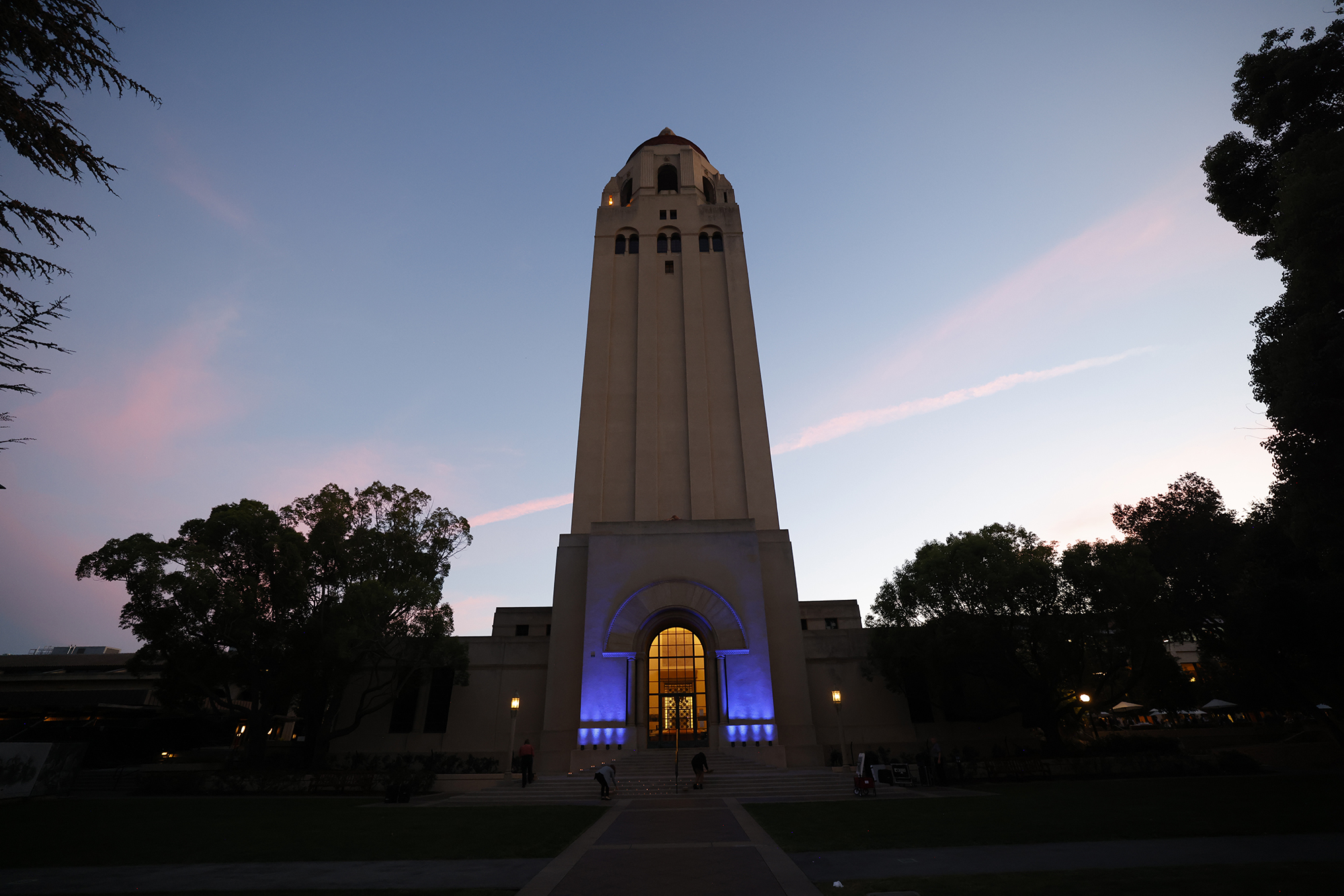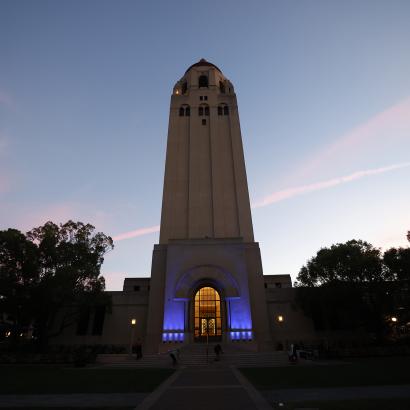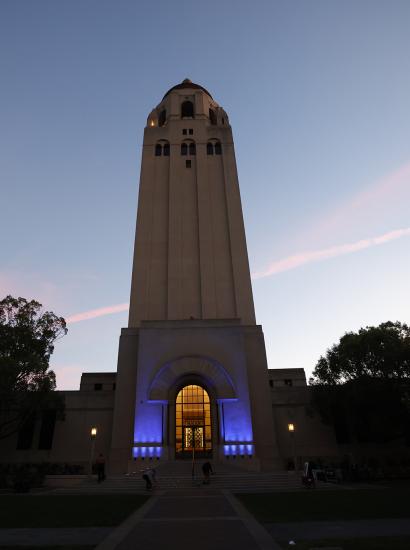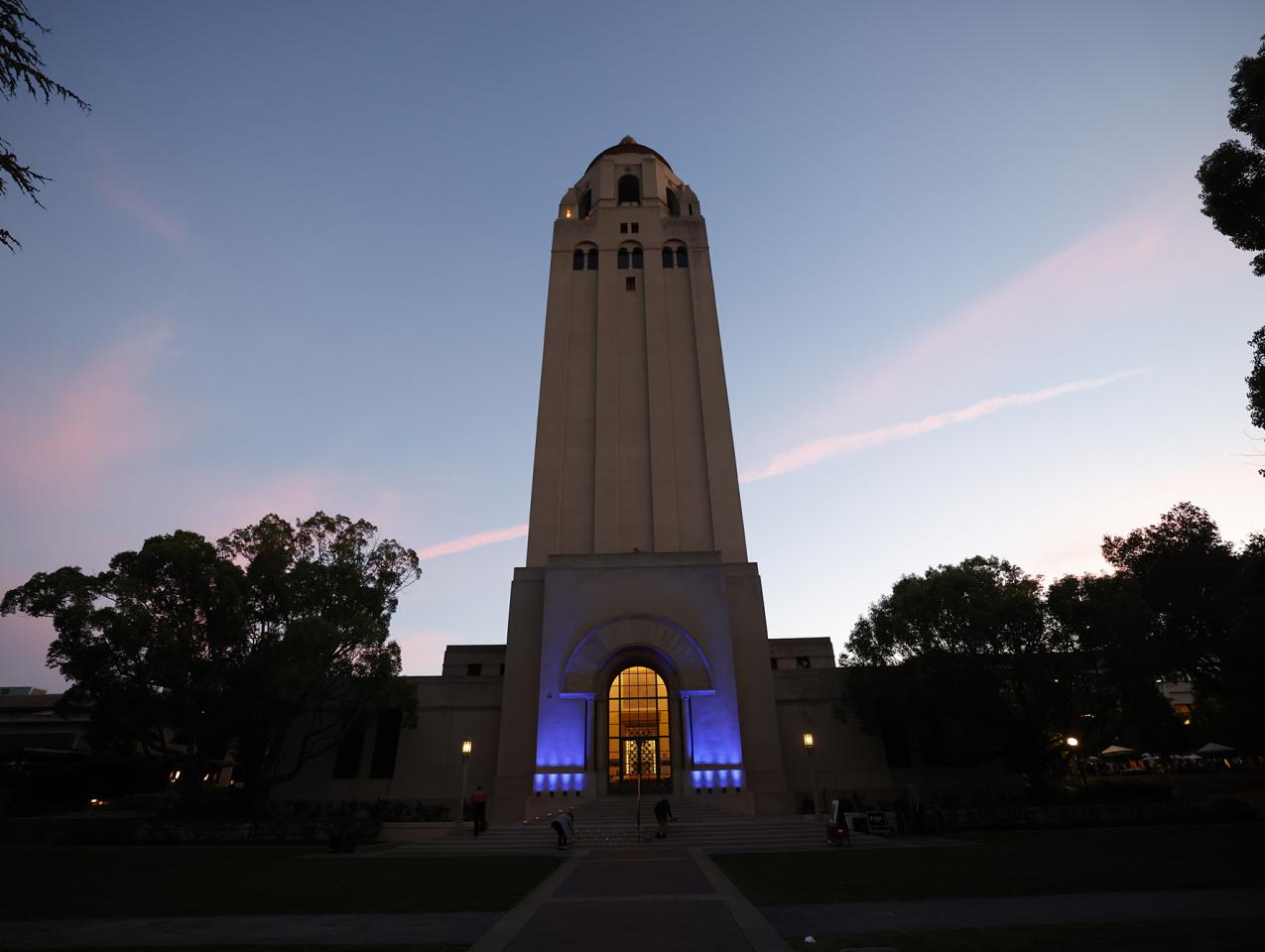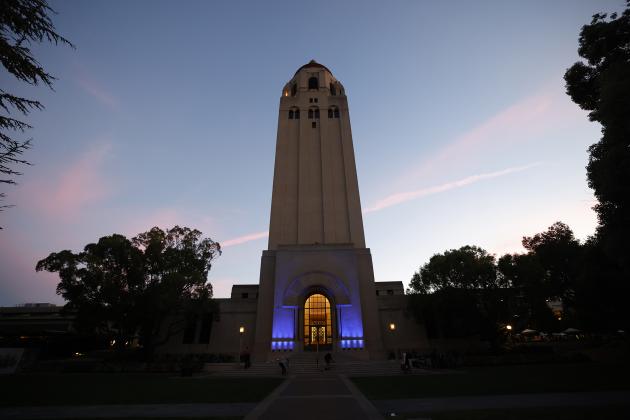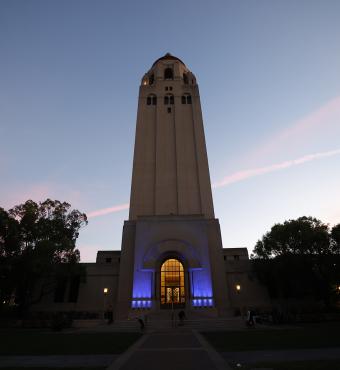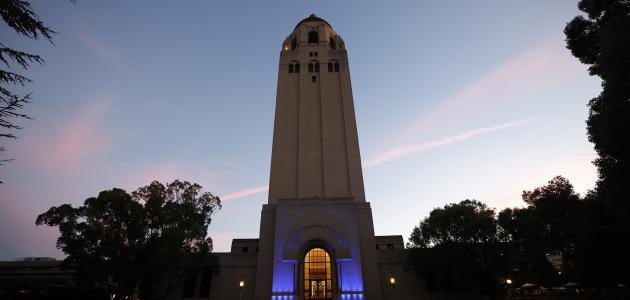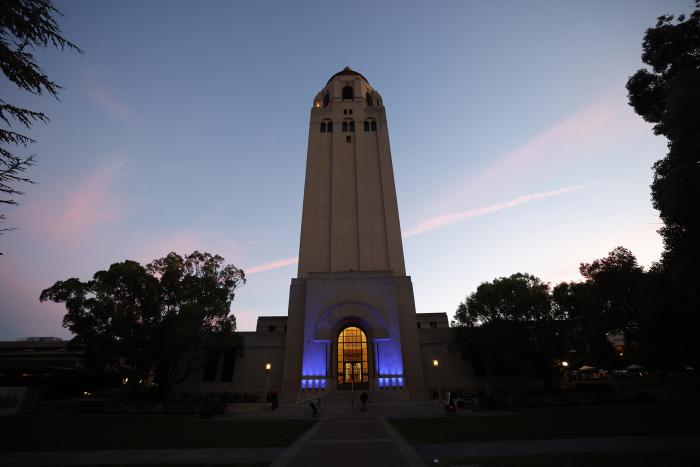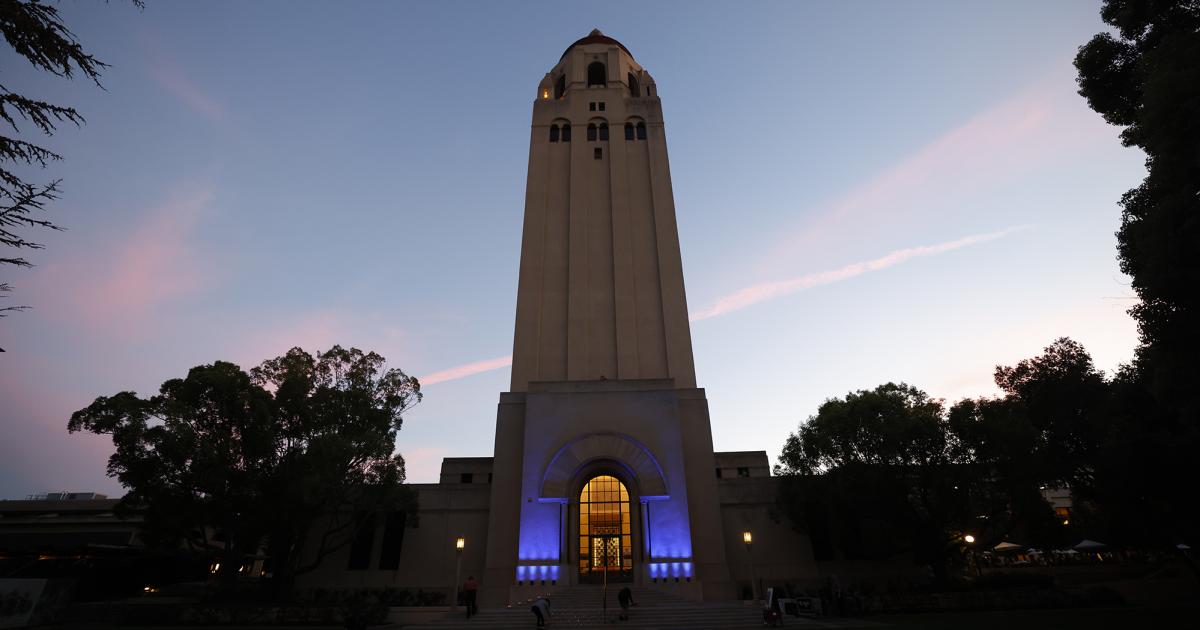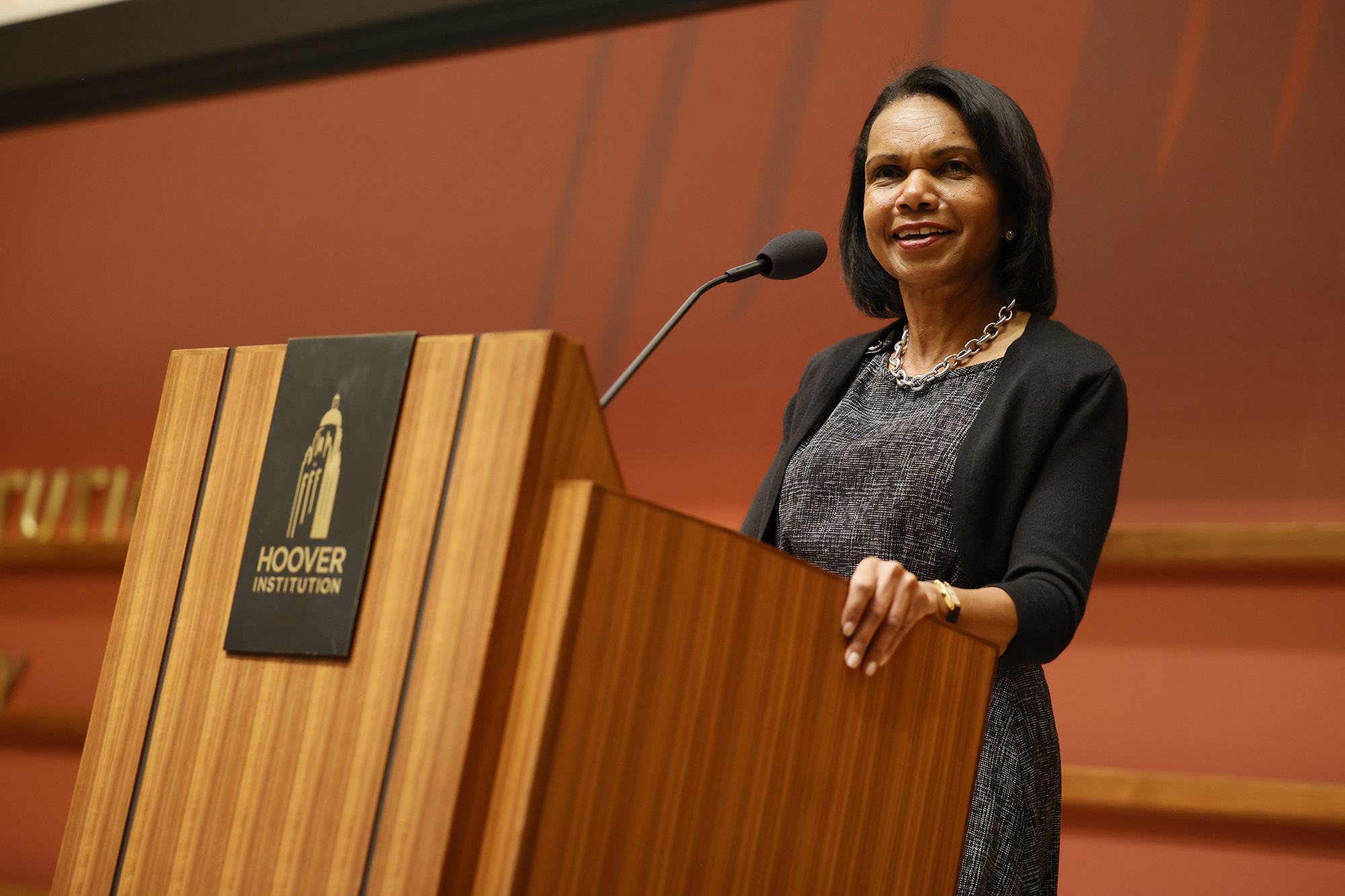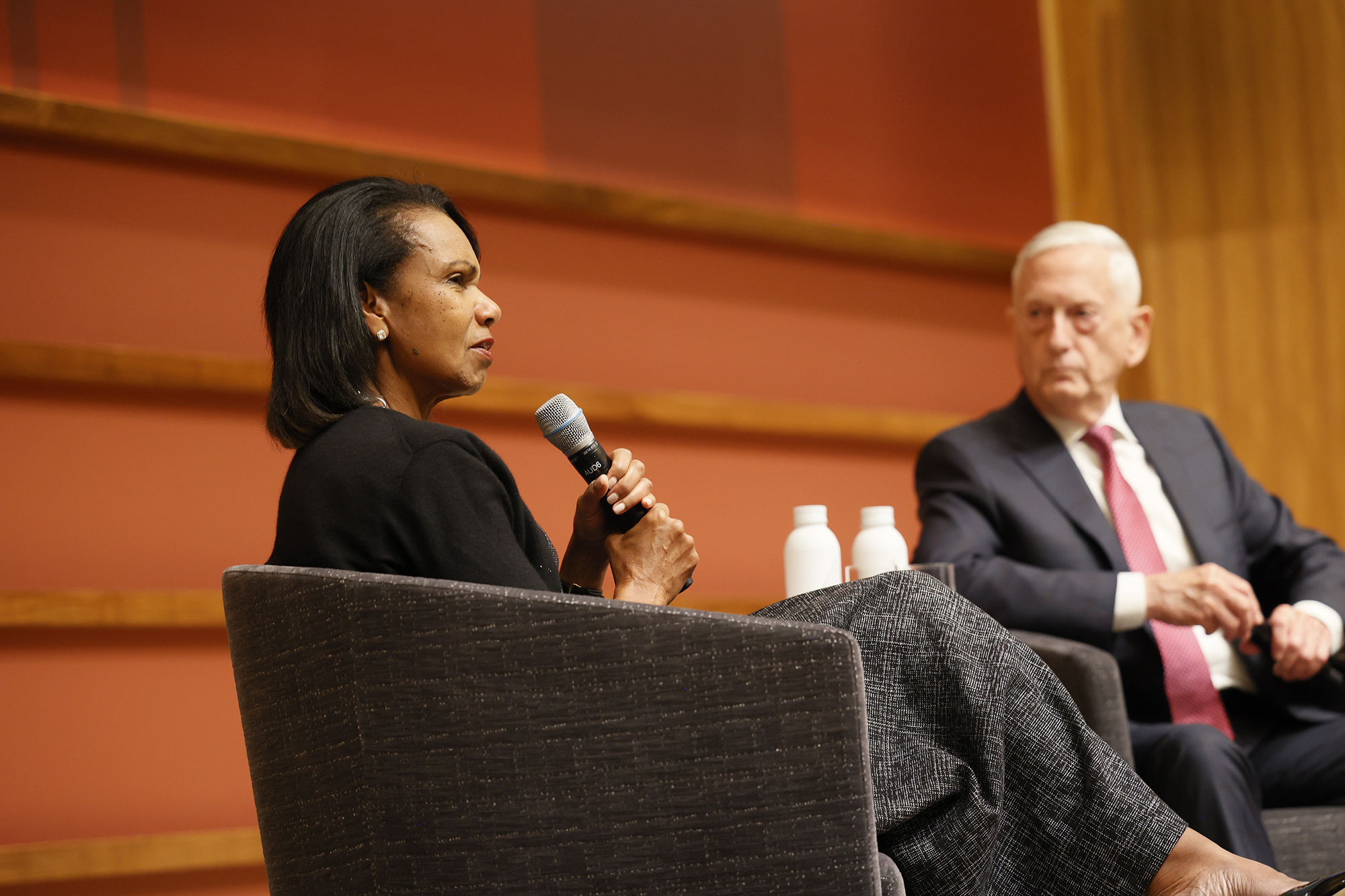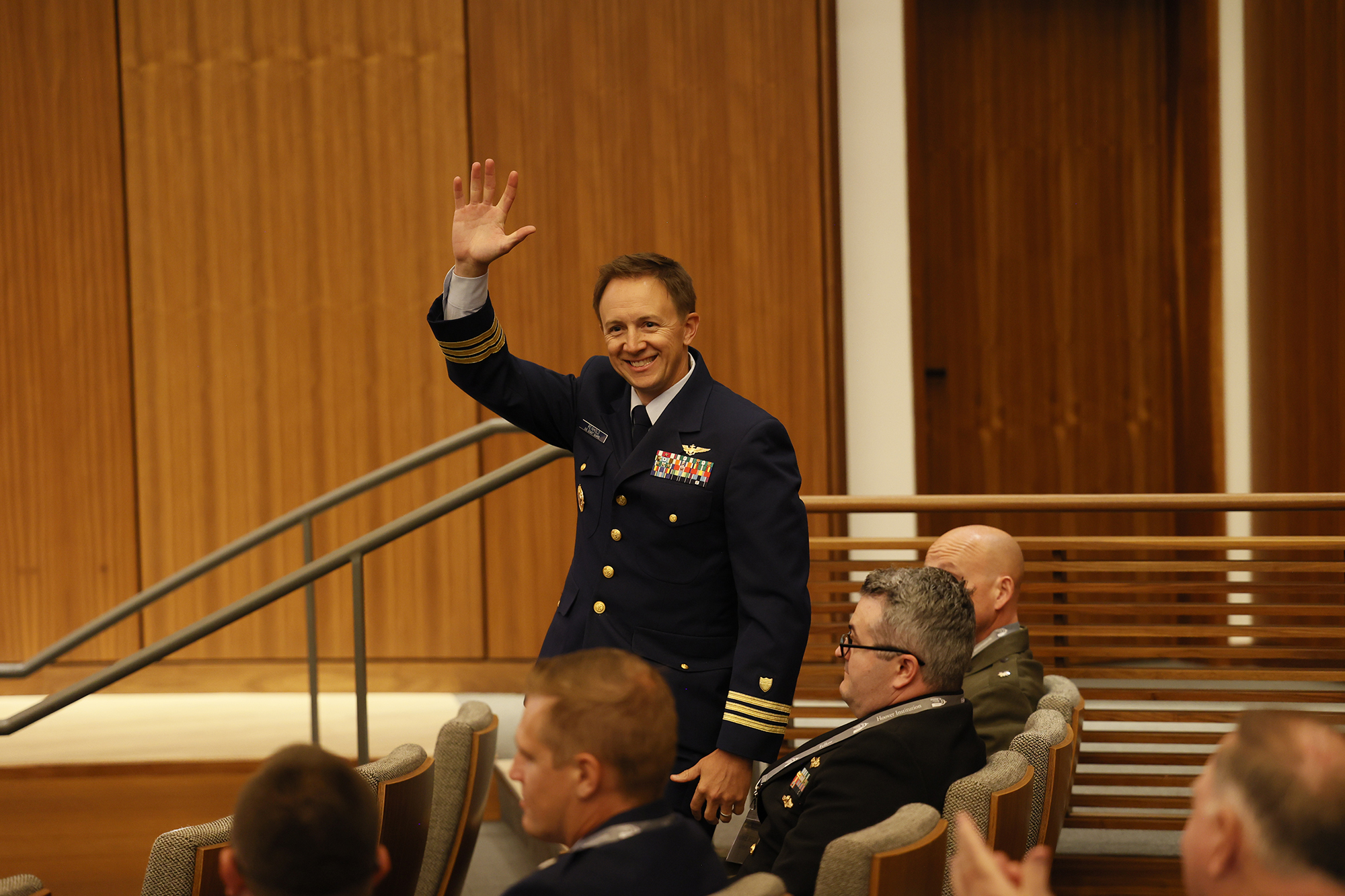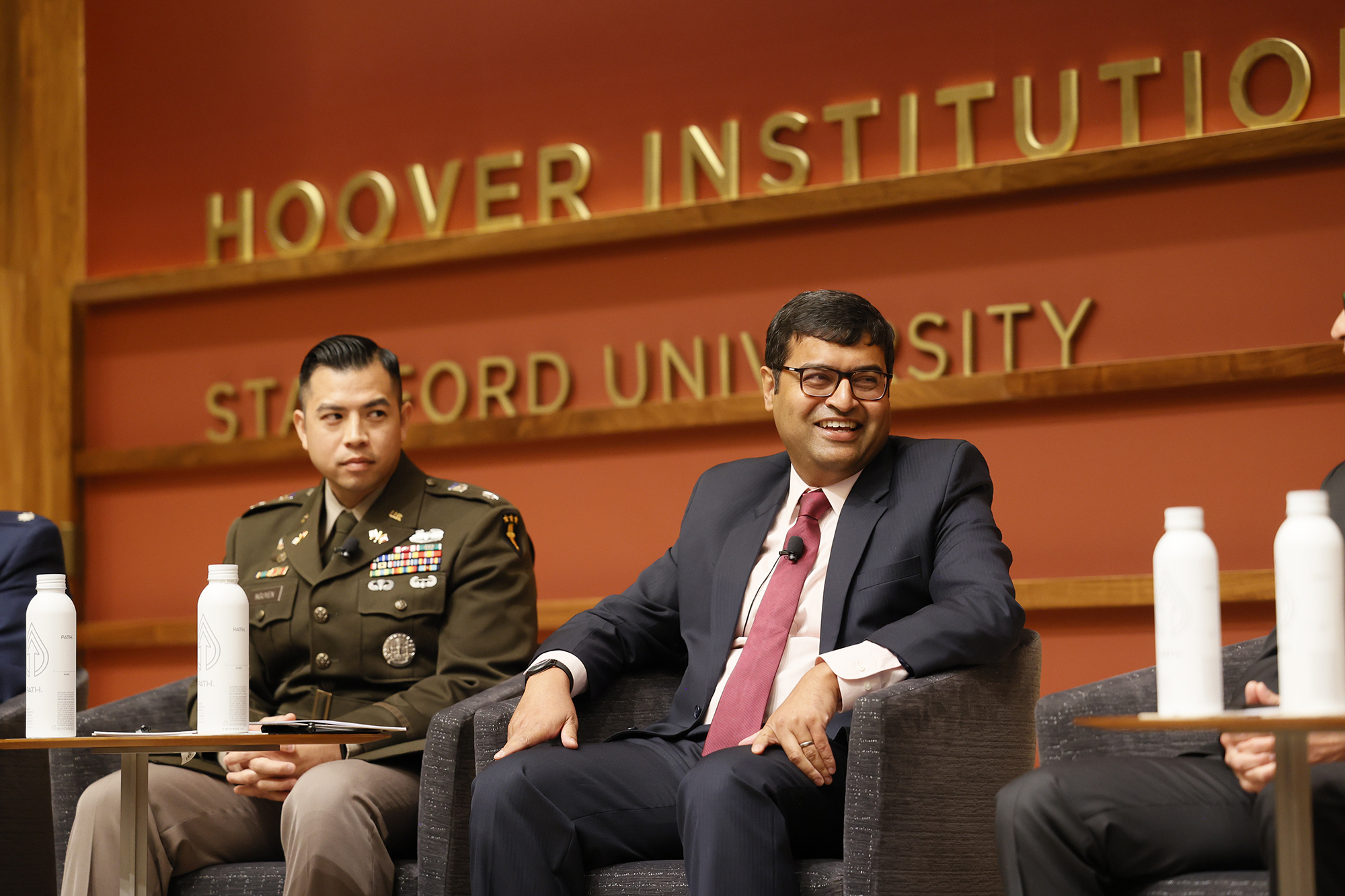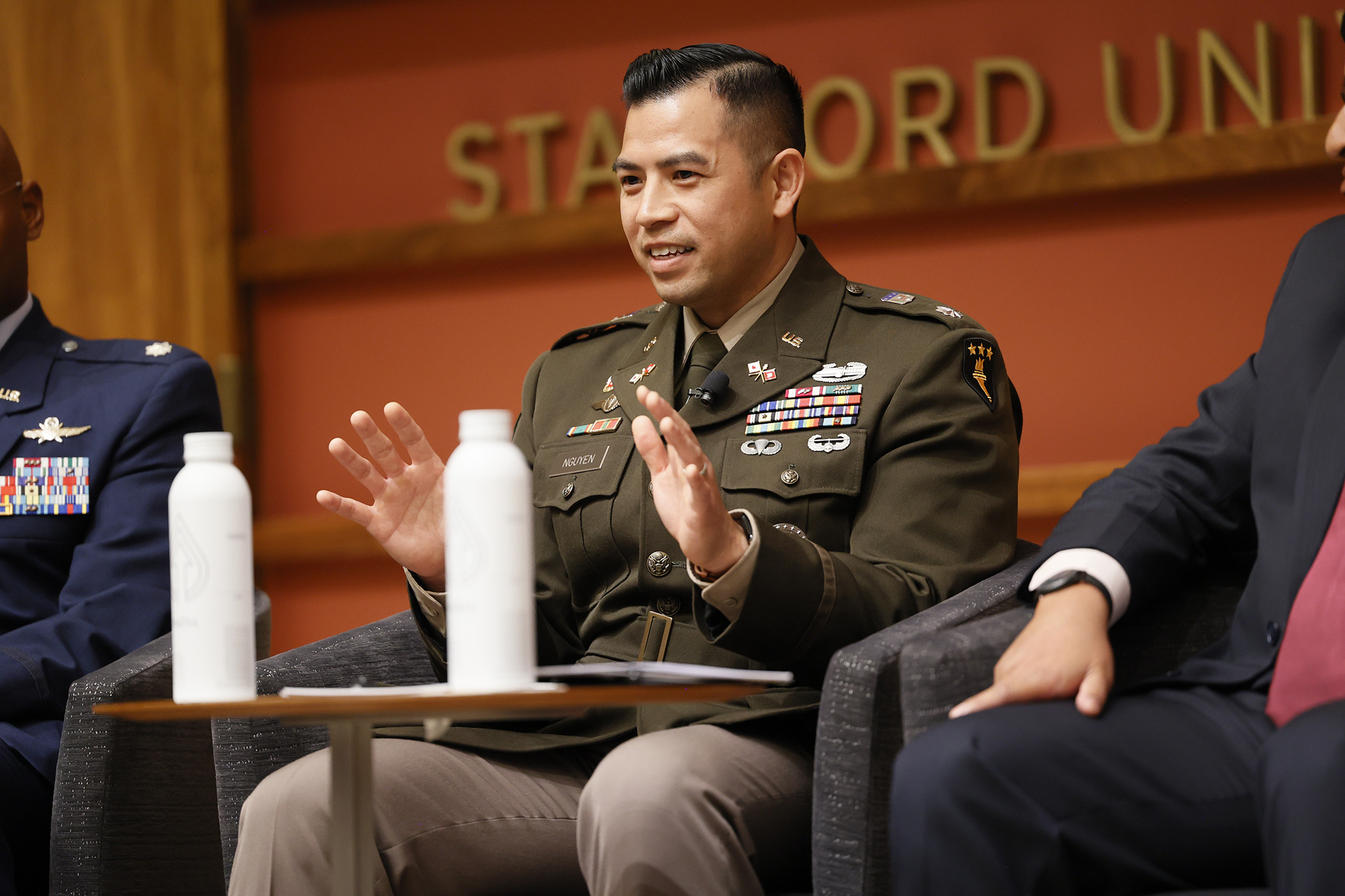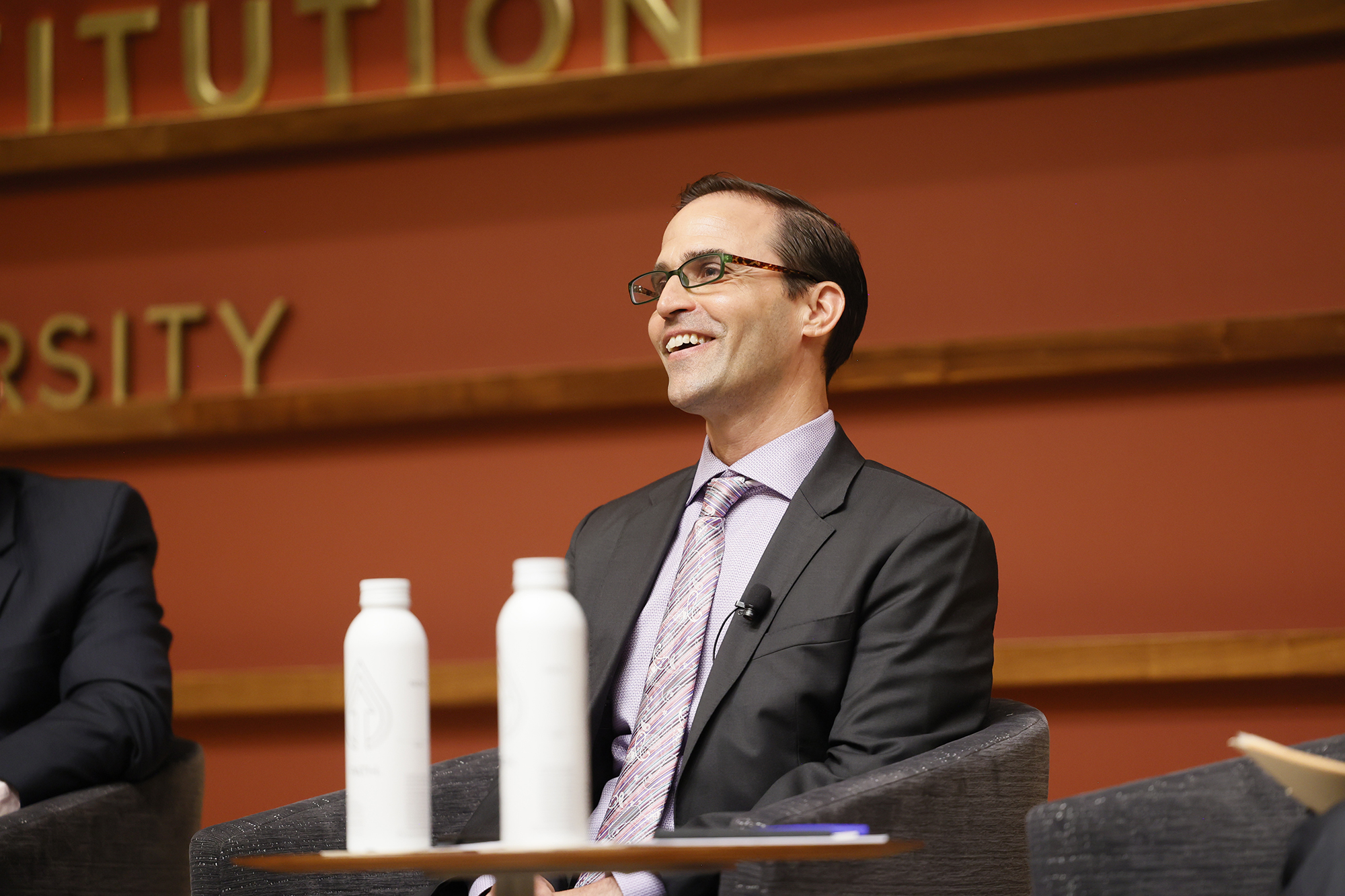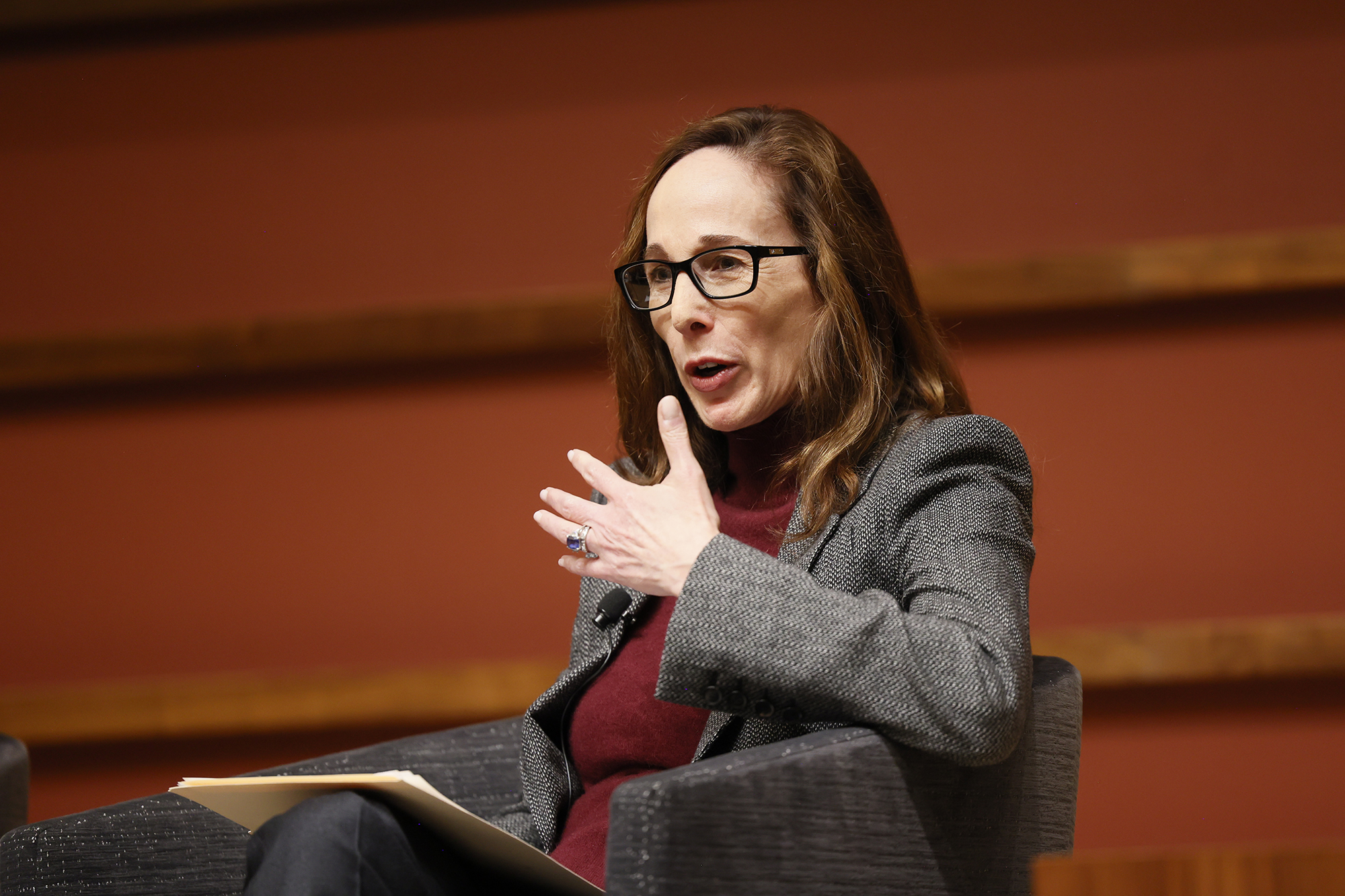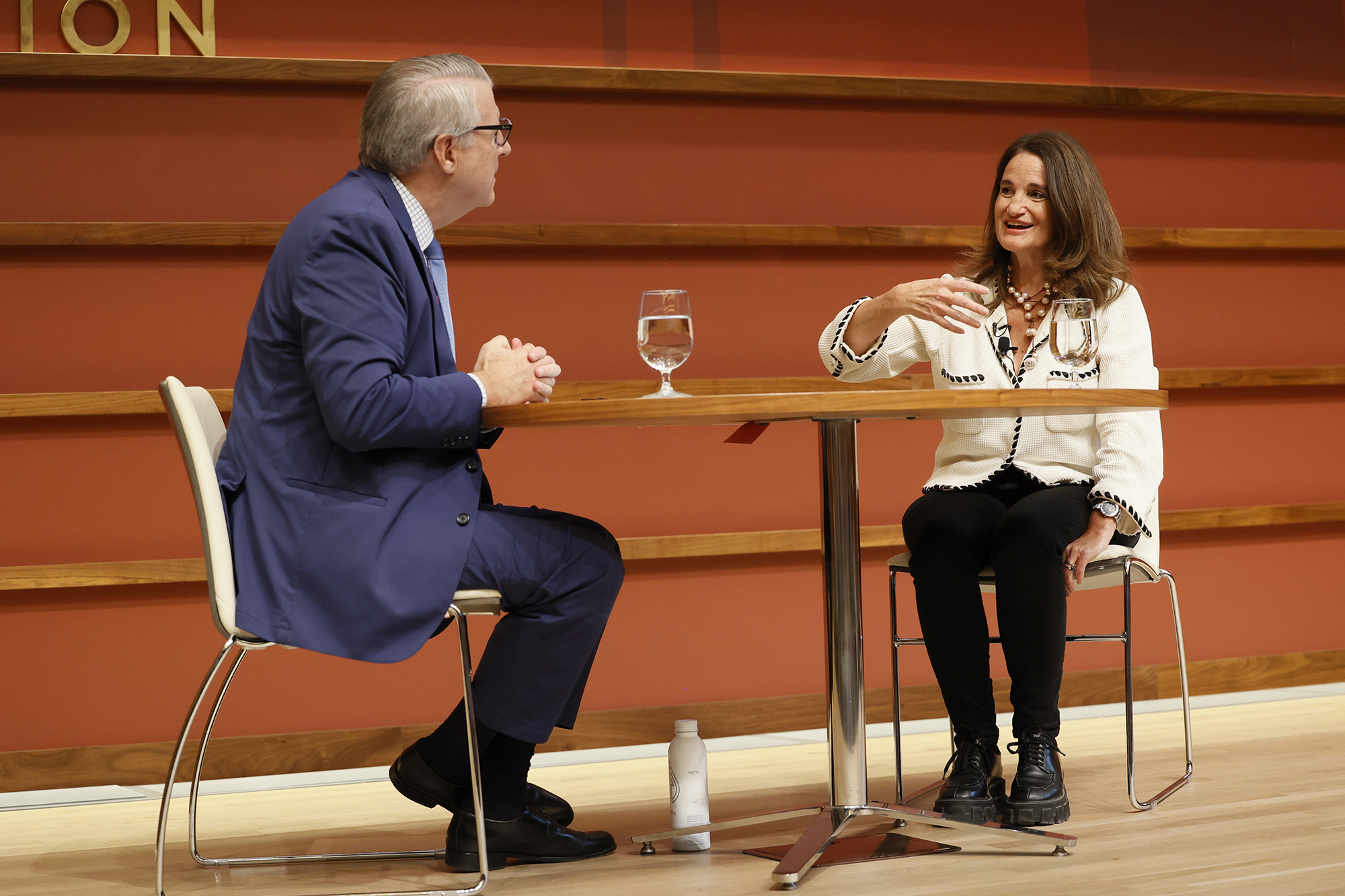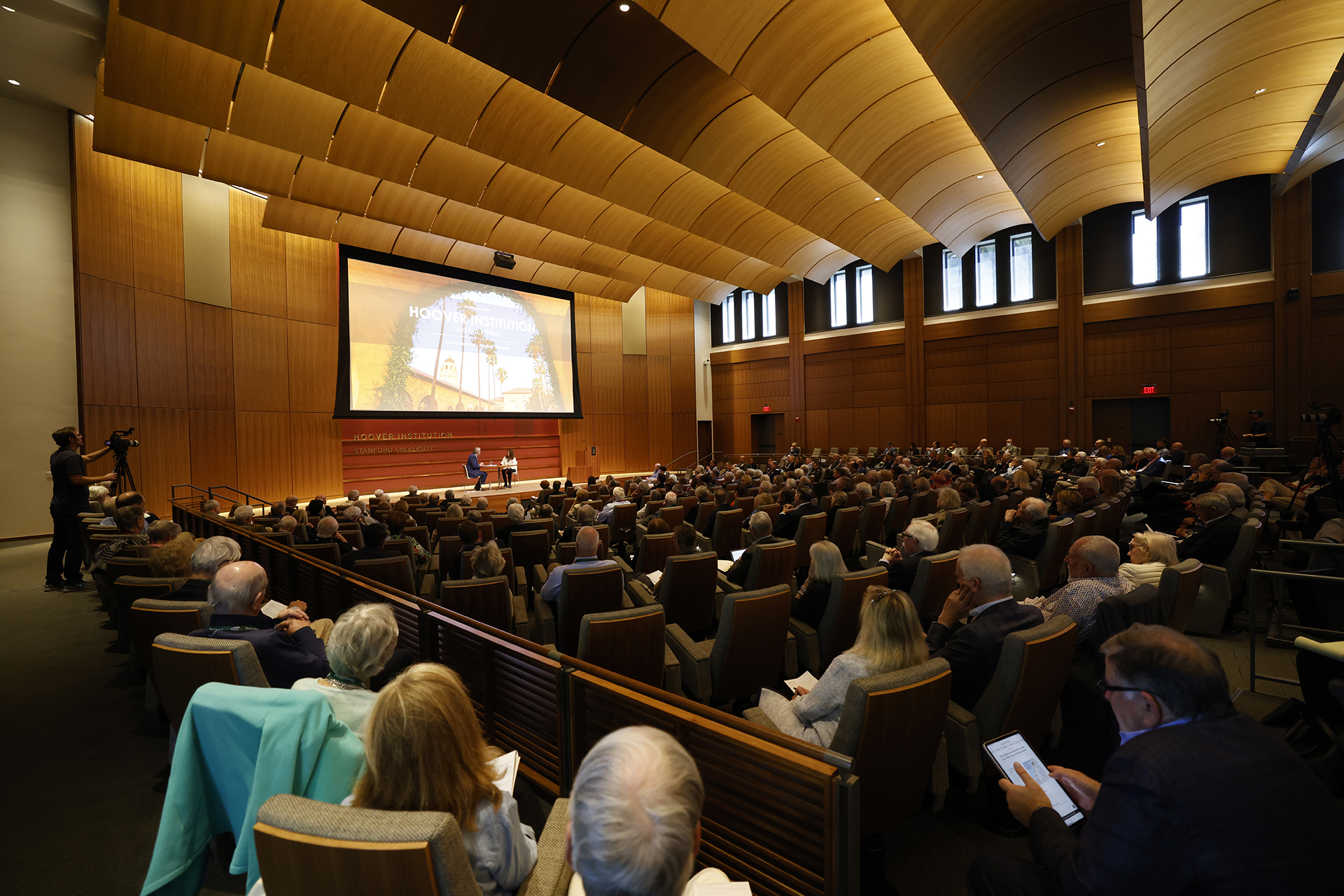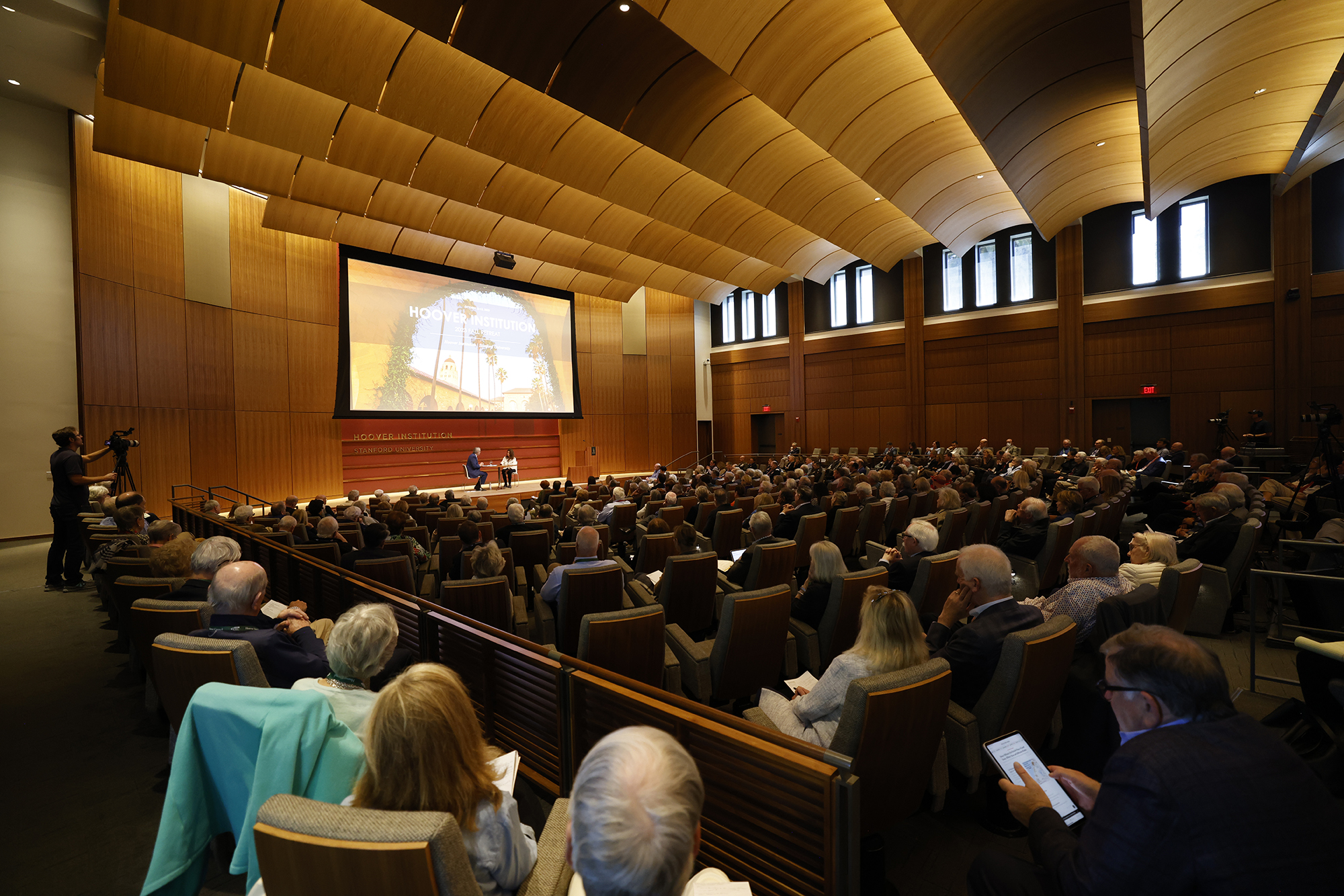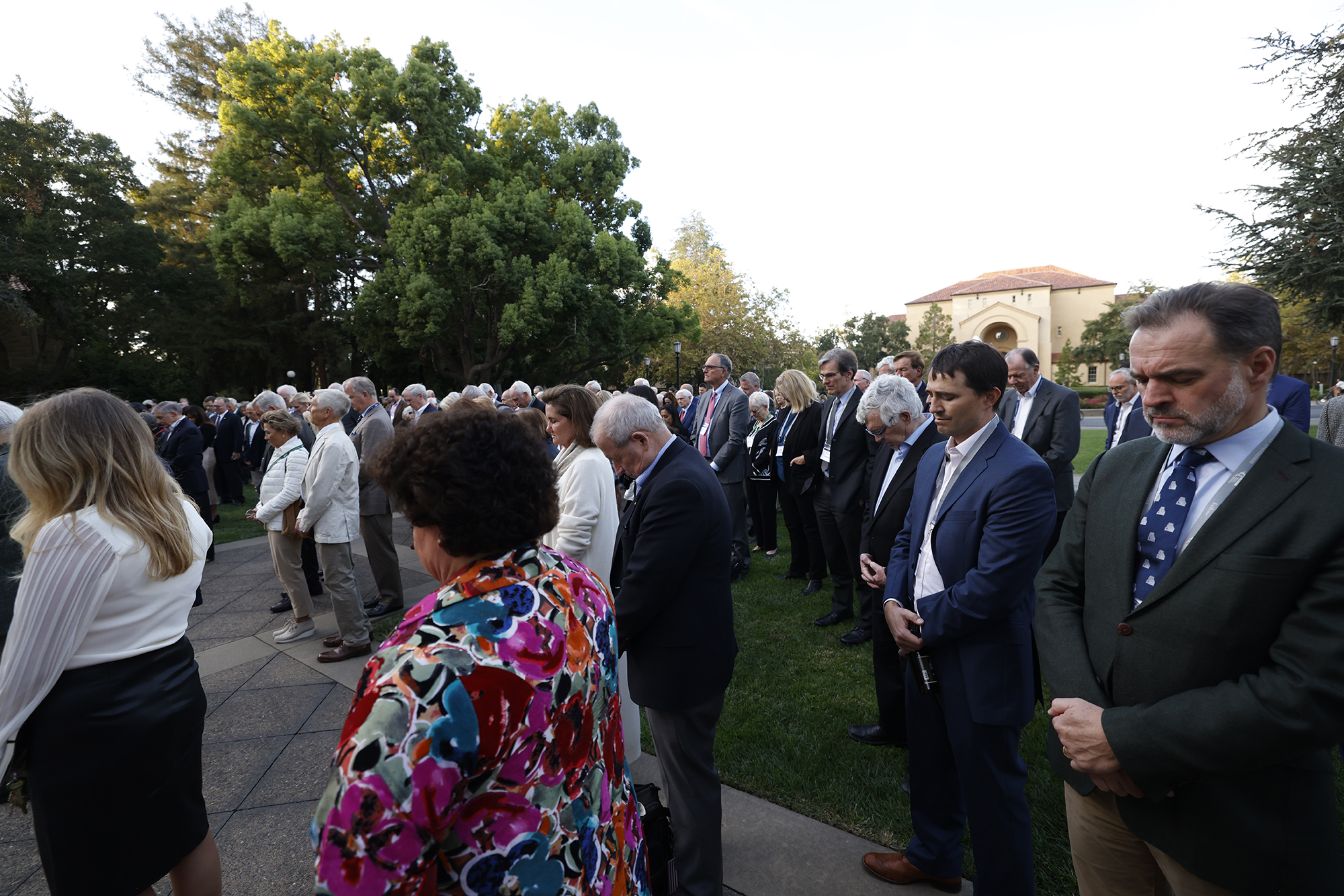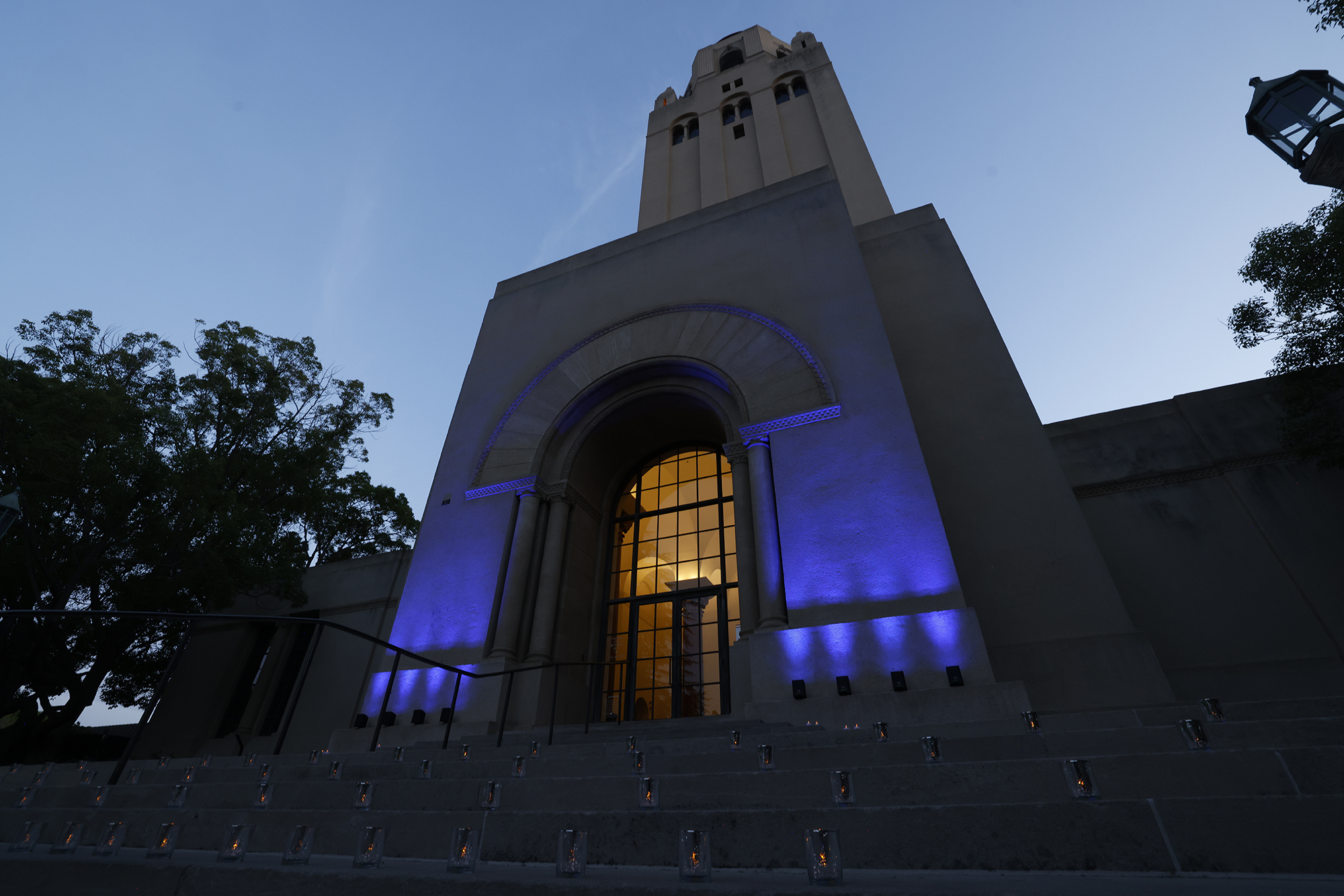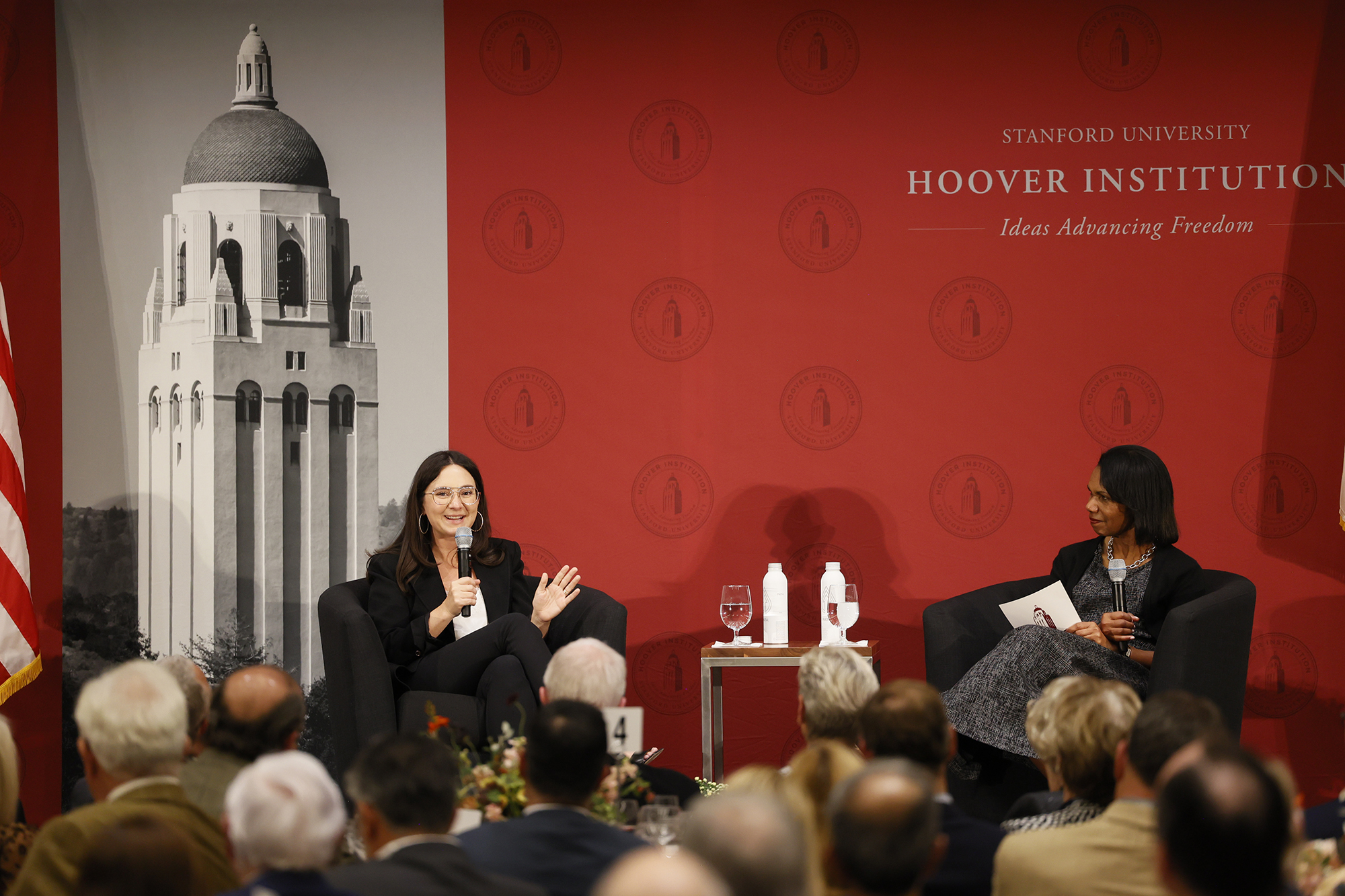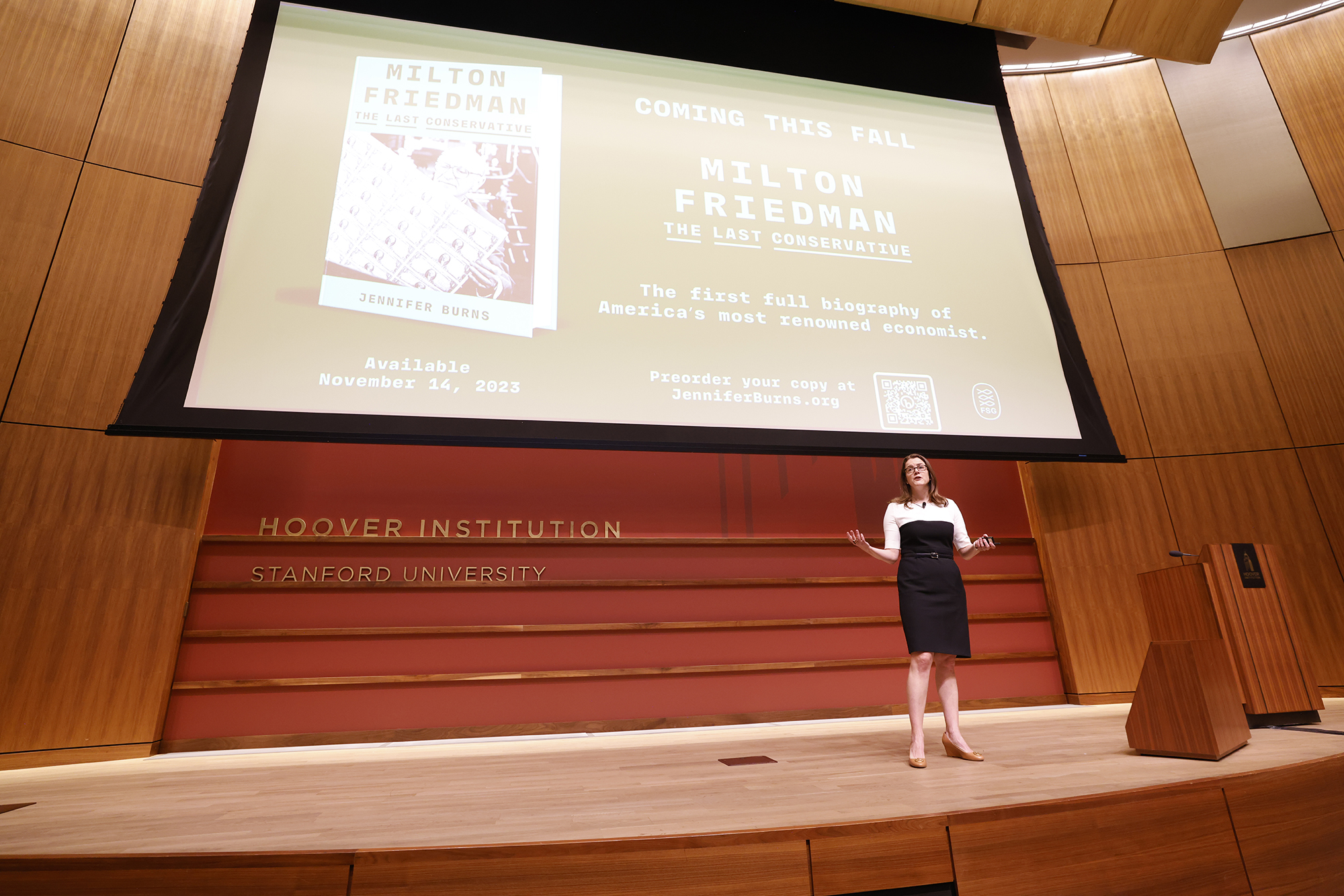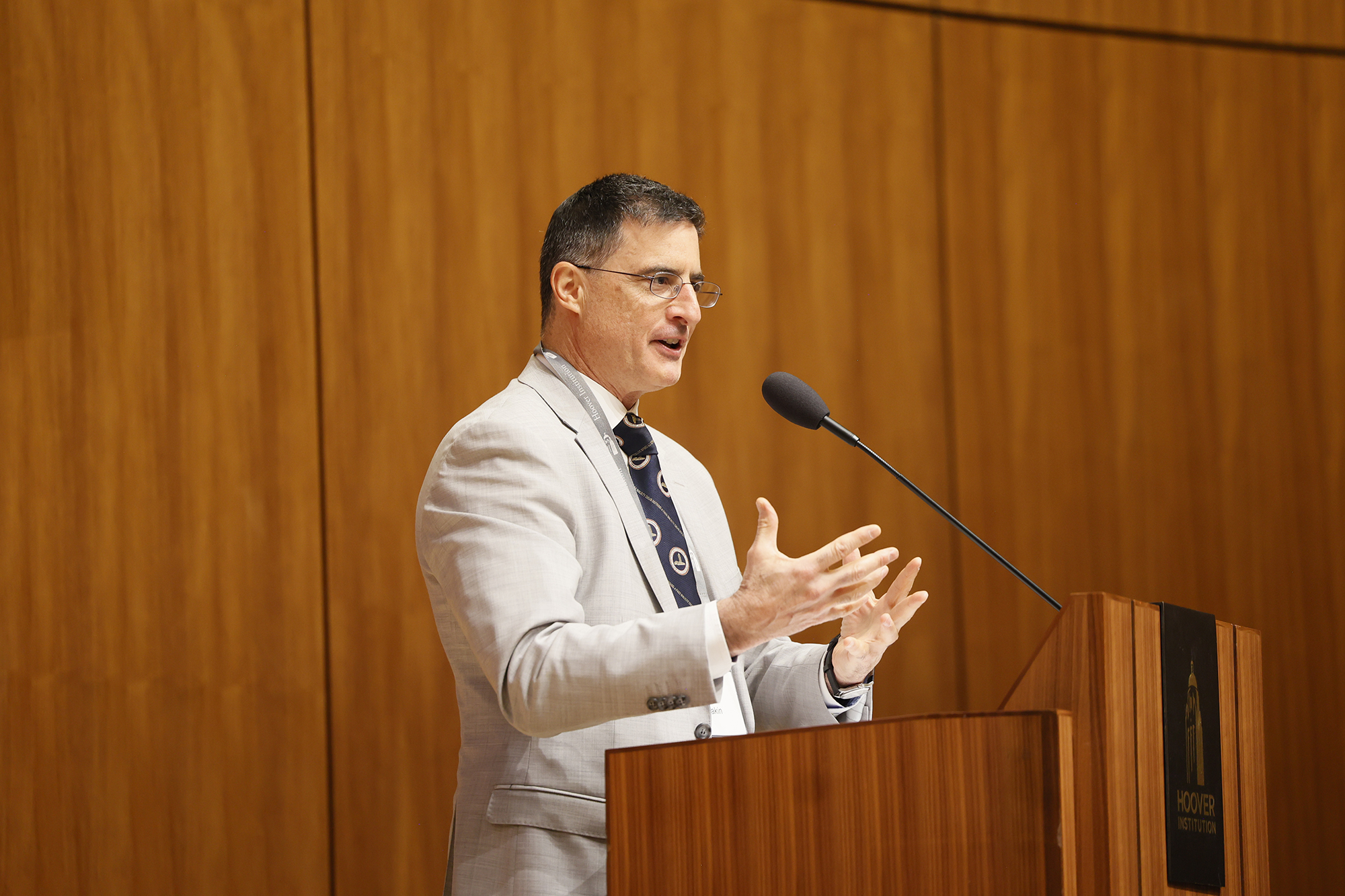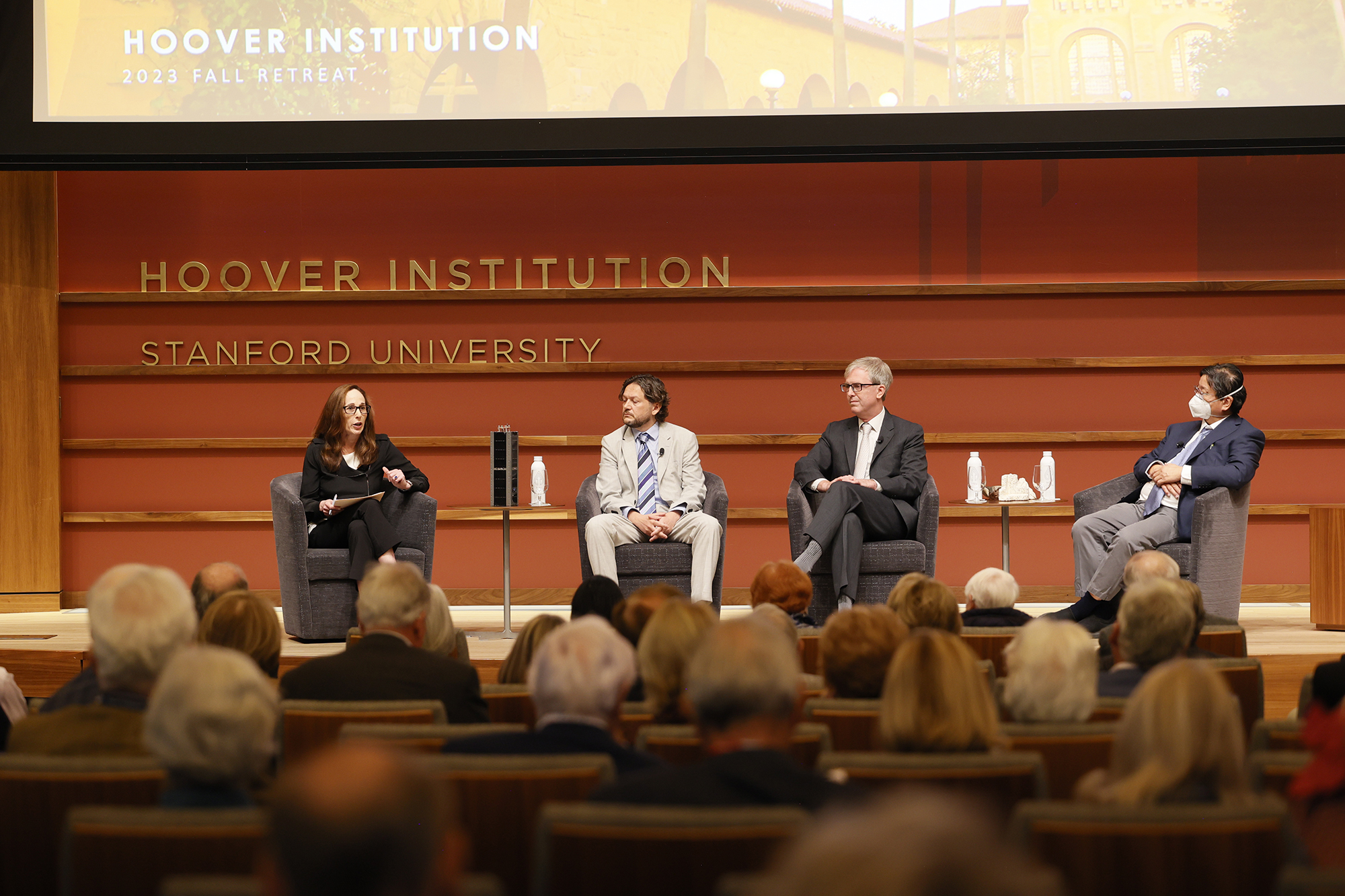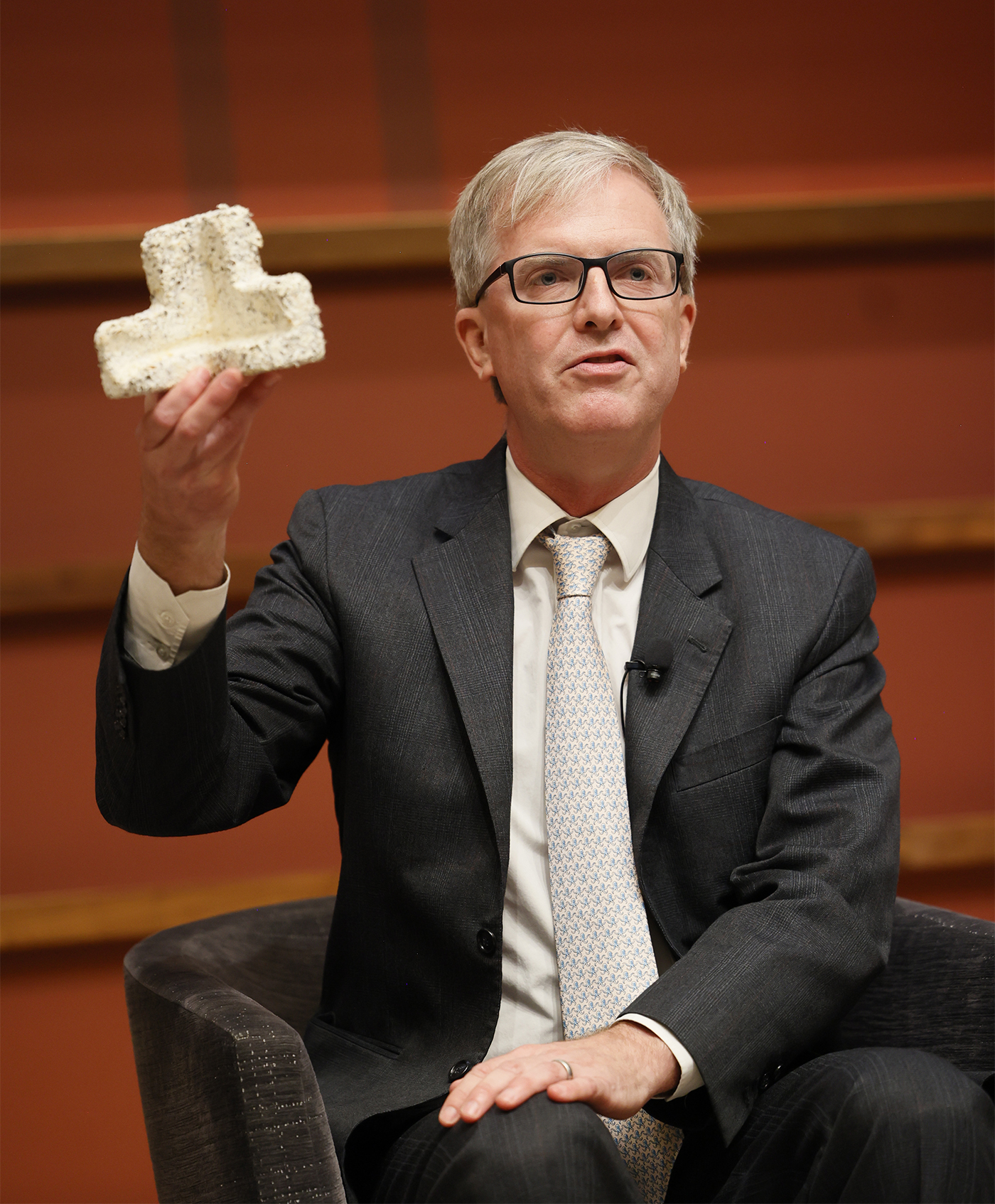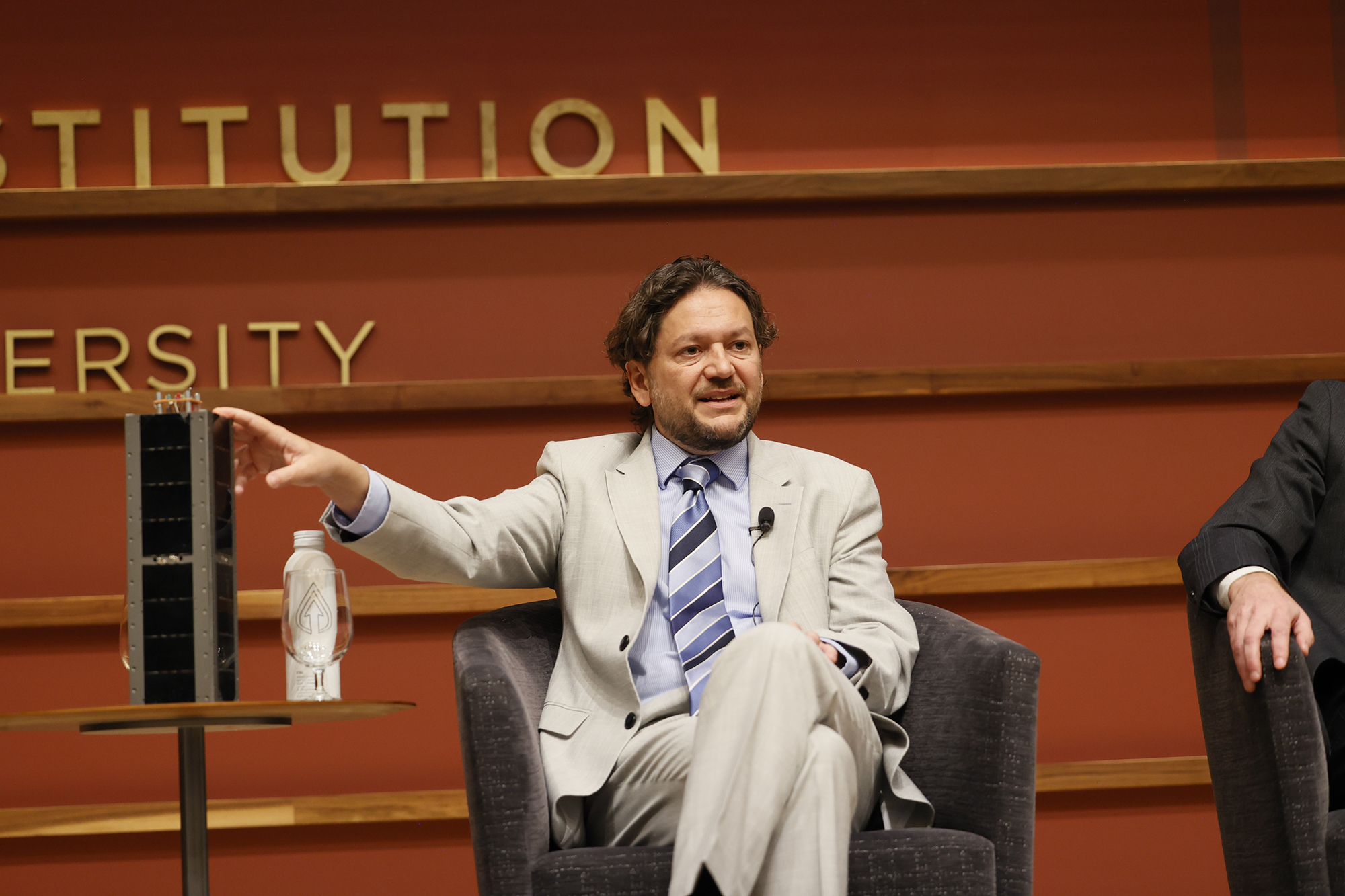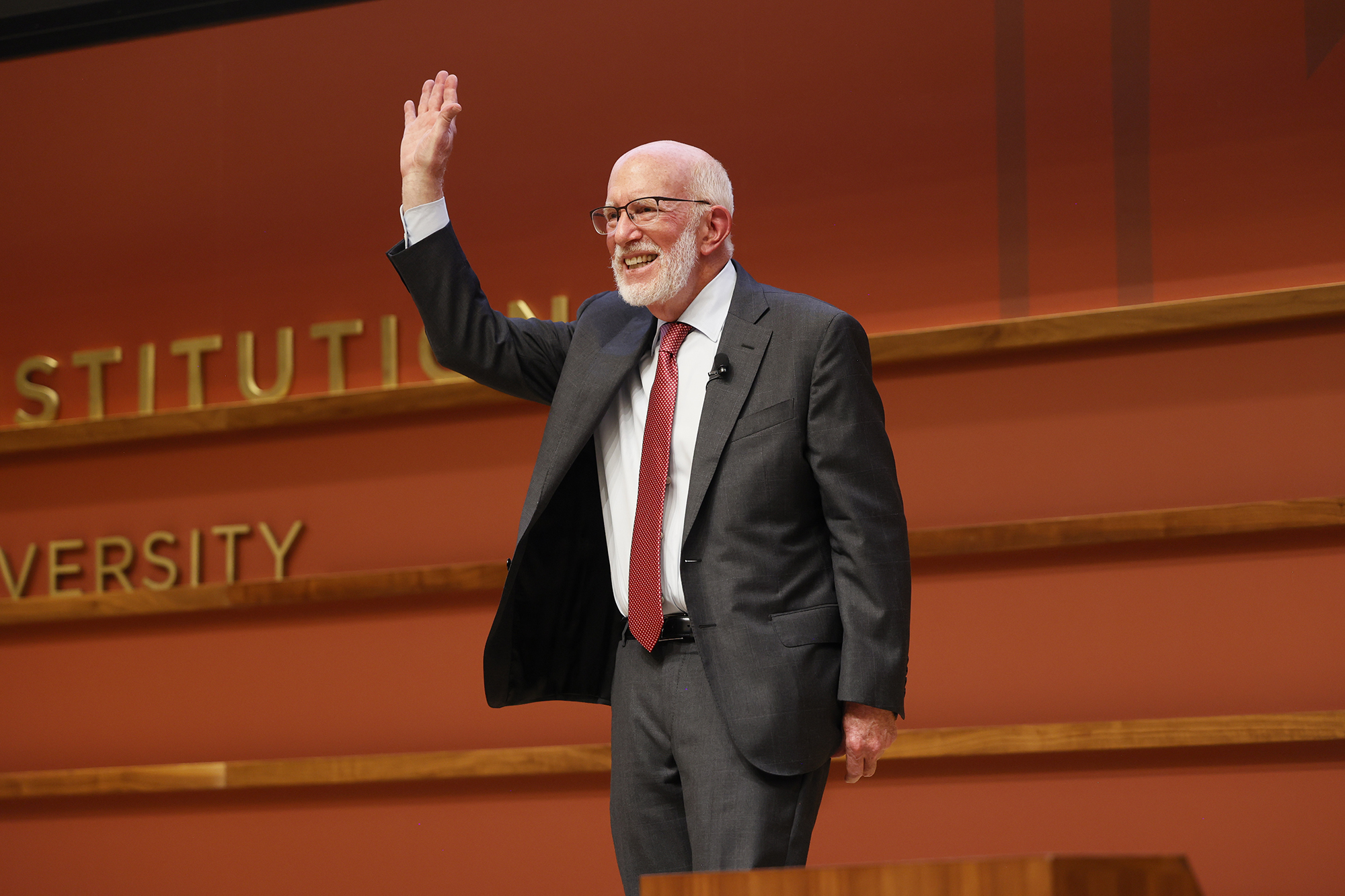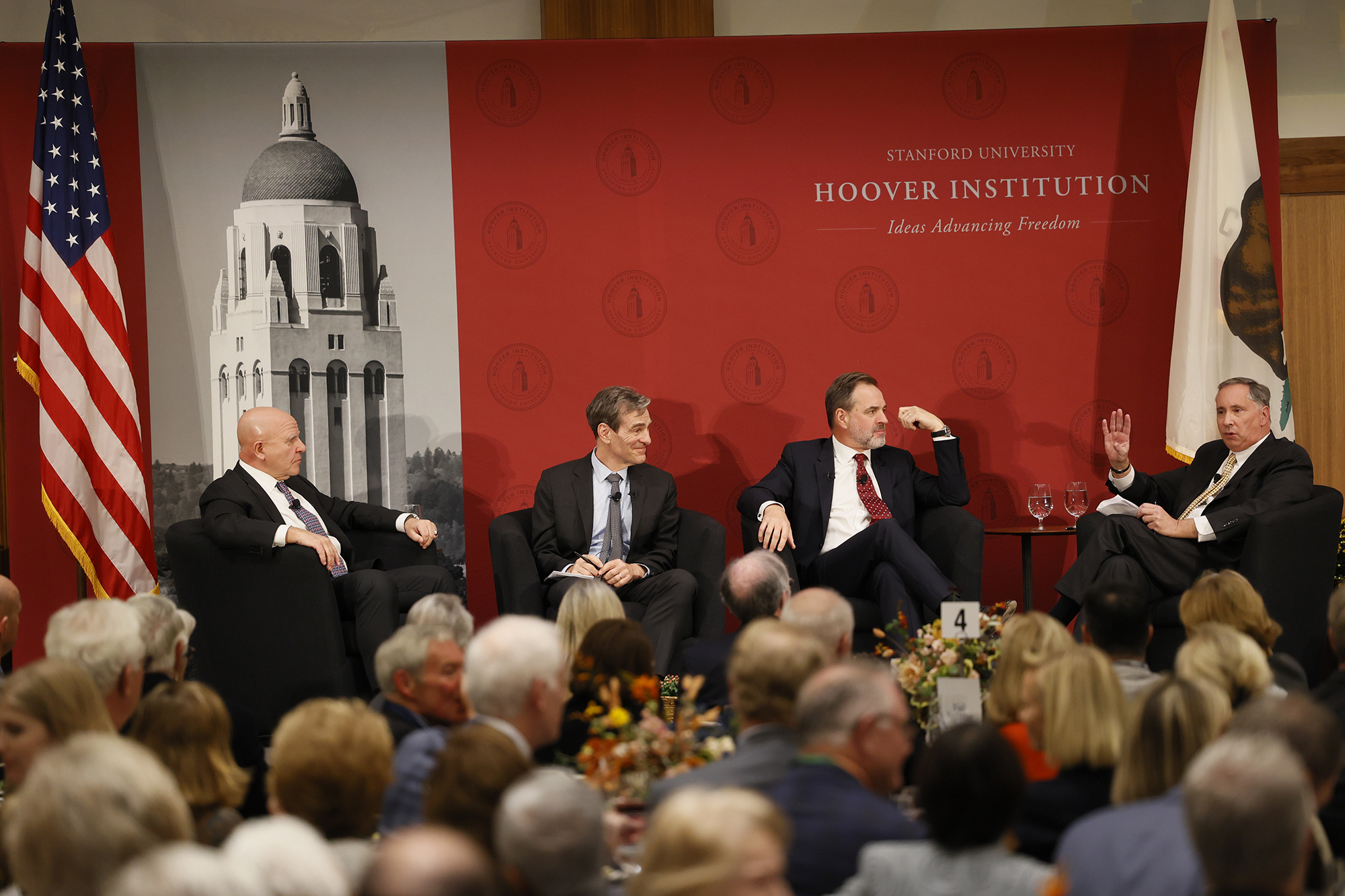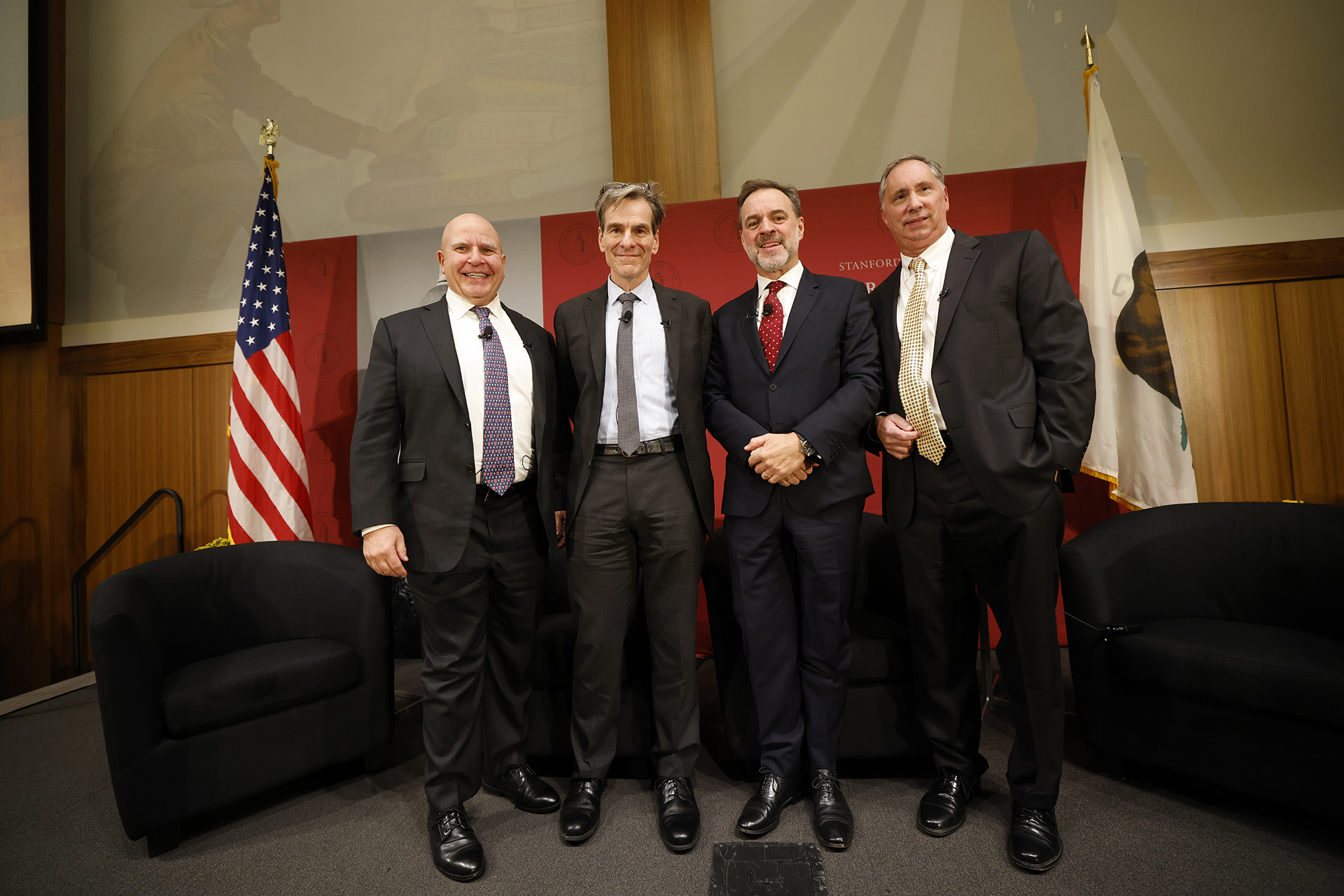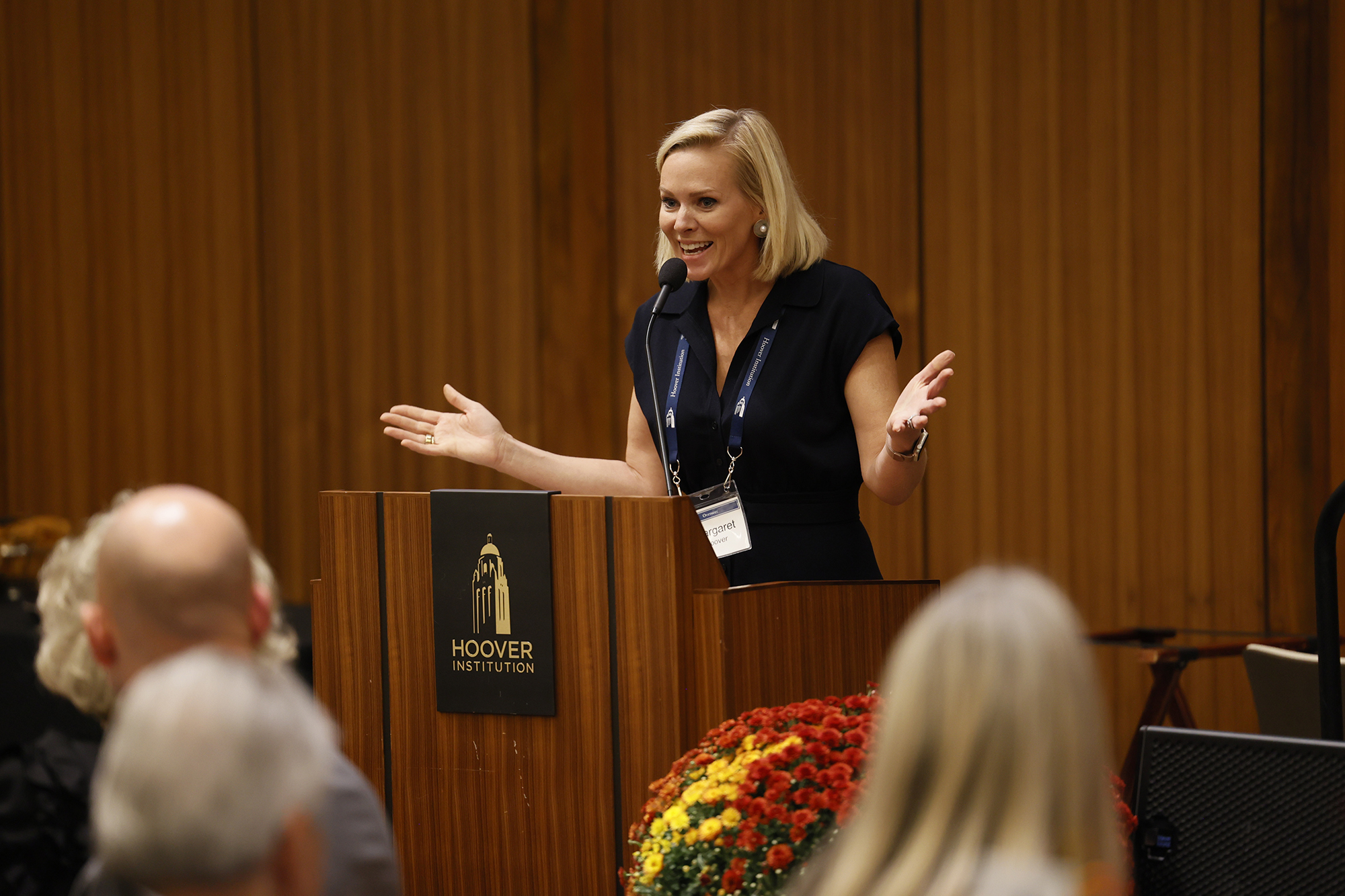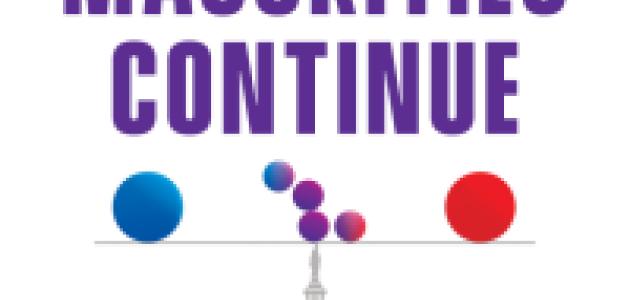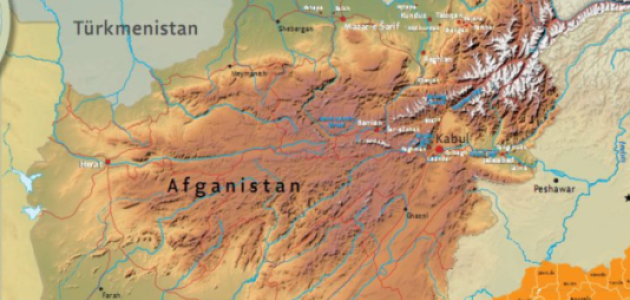Hoover Institution (Stanford, CA) – The Hoover Institution welcomed its Board of Overseers and supporters to the Stanford University campus for the Fall 2023 Retreat on Thursday, October 12, and Friday, October 13, 2023.
The two-day program featured presentations by Hoover scholars, as well as engaging discussions on topics, including the fallout of the terror attacks against Israel on October 7, US foreign policy options in the current global landscape, Xi Jinping’s ambitions to regain Chinese centrality on the global stage, the intellectual legacy of Milton Friedman, and how frontier technologies are revolutionizing the world.
Hoover Institution Updates
Hoover Institution director Condoleezza Rice opened the retreat on a somber note about Hamas’s terror attacks in southern Israel on October 7. She stated that these acts of brutality would be remembered as some of the greatest crimes against humanity the world has ever witnessed.
Rice then provided an update to retreat guests on the recent activities of the Hoover fellowship. She announced the appointment of five new senior fellows, including internationally prominent economists Valerie Ramey, Ross Levine, and Steven Davis; the historian Philip Zelikow, who focuses much of his research on international law, foreign policy, and statecraft; and the widely cited First Amendment scholar Eugene Volokh, who will join Hoover full-time in the summer of 2024.
Rice discussed centerpiece initiatives that the Hoover Institution will soon launch. These include the Stanford Emerging Technology Review, an ambitious university-wide initiative that brings together Hoover fellows, Stanford scientists, and engineers to analyze breakthroughs in frontier technologies that are shaping the world and their implications for democracy, economies, and national security.
Rice also announced that on November 30 and December 1, the Hoover Institution will launch its first dedicated center, the Center for Revitalizing American Institutions, with a high-profile public conference. The conference will address the astonishingly low levels of trust and confidence among US citizens in their democracy. The aim of the center is to help rebuild faith in American institutions, which have helped advance freedom and prosperity for more than two centuries.
The sixty-sixth secretary of state also announced the upcoming publication of A Nation at Risk +40, a volume of analysis featuring Hoover fellows and other leading scholars tracing the lessons of school reform from the past forty years. She stated that it is fair to say that the United States is still “a nation at risk“ and that significant reforms should be made to address the learning losses experienced by young people, especially those who are disadvantaged due to the impact of COVID-19.
Finally, Secretary Rice commented on the recent leadership change at Stanford University, with newly appointed interim president Richard Saller and provost Jenny Martinez. Rice said that Hoover will enjoy a strong relationship with Saller and Martinez, just as it did with their respective predecessors, Marc Tessier-Lavigne and Persis Drell.
Global Conflicts
Following her opening remarks, Rice engaged in a conversation with General James Mattis about the evolving situation in the Middle East and the chaotic international environment, reviewing the global and regional dimensions of the attacks in Israel, and assessing Israel’s and America’s responses. At the time of the conversation, Israel had restored its borders, and the United States had displayed effective deterrence through the deployment of a carrier task force to the Eastern Mediterranean.
Mattis and Rice also discussed the Russian-Ukrainian conflict. Mattis stated his belief that the war will continue, largely because neither side has made a major breakthrough. However, he worried that Russia’s patience for drawn-out conflict may challenge the West’s tolerance.
Regarding China’s material support for Russia, Mattis, echoing Australian ambassador to the United States Kevin Rudd, said that Beijing is skating on thin ice. On the one hand, Chinese president Xi Jinping does not want Russia to fail in Ukraine, but on the other hand, China’s economic situation is such that it wouldn’t be able to withstand punitive – and severe – sanctions from Western countries.
Mattis urged that the United States should more robustly engage with the international system, acknowledging that whether Americans like it or not, they cannot escape the global threat environment. For example, he stressed that if the US doesn’t make an adequate investment in support of Ukraine’s defense, the cost will be steeper in securing freedom of America’s European allies against Russian aggression and authoritarian ambitions.
Click here to listen to Rice’s interview about the crisis in Israel with syndicated talk radio show host Guy Benson, who broadcast live from Hoover Institution studios earlier that week.
National Security Affairs Fellows
On the morning of Thursday, October 12, a selection of the class of 2023–24 National Security Affairs Fellows engaged in a panel discussion with the program’s director, Senior Fellow Amy Zegart.
The panelists, Lt. Col. Alphanso (Fonz) Adams (US Air Force), David Arulanantham (State Department), Lt. Col. Vinh Nguyen (US Army), and Special Agent Nicholas Shenkin (FBI), described their careers and current challenges in service to the nation.
Adams and Nguyen described the dramatic shifts in US cyber and network operations from the global war on terror to today’s great-power competitions with China and Russia. Shenkin explained the nature and scale of the expropriation of American intellectual property by the People’s Republic of China (PRC) and his work to counter such pervasive and pernicious activities. In his remarks, Arulanantham acknowledged that although revolutions in communications technology have in many respects altered the way diplomacy has been conducted, what hasn’t changed is the concept that the United States can better protect its interests by strengthening relationships with partner nations.
Click here to learn more about the Robert and Marion Oster National Security Affairs Fellows Program.
Uncommon Knowledge: The World According to China
In a special live taping of Uncommon Knowledge, Senior Fellow Elizabeth Economy discussed her recent book, The World According to China (Polity, 2022). Returning to Hoover after a two-year leave of absence to serve as senior advisor for China to the secretary of commerce, Economy discussed with host Peter Robinson a range of issues, including the Communist Party’s designs for controlling internet traffic and Chinese president Xi Jinping’s ambition to reclaim “Chinese centrality on the global stage.”
In the interview, Economy also compared the China policies of Presidents Trump and Biden, noting that although the two administrations diverged in many respects, they both recognized that China is a threat that must be countered, especially regarding the PRC’s objectives with Taiwan.
Click here to watch the entire episode.
The October 7 Attacks: Origins, Israel’s Response, and Geopolitical Ramifications
Peter Berkowitz described in grave detail the Hamas terror attacks in Southern Israel on the morning of October 7, when more than 1,000 people were killed and over 100 hostages were taken to Gaza.
Berkowitz compared the strategic picture in Israel between October 6 and 8 to Americans’ experience on the days before and after September 11, 2001.
On October 6, Israeli society was bitterly divided in the aftermath of the enactment of the Netanyahu government’s judicial reforms. These divisions were being closely monitored by Hamas and Israel’s other adversaries, namely Hezbollah in Southern Lebanon, the Assad regime in Syria, and Iran.
Berkowitz described Tehran as the chief mastermind behind instability in the Middle East. As a top-ten energy-producing country, Iran has pursued hegemony in the region by using its revenues to fund terror groups that threaten the security and interests of the United States, Israel, and partner Arab nations.
Berkowitz urged the United States to return to a maximum- pressure campaign against Iran and freeze the $6 billion that Tehran gained access to in a deal made in exchange for releasing an American prisoner held in its custody. He held that such moves would be in America’s national security interest and that of its allies. Berkowitz also maintained that Beijing is closely monitoring the US response to the attack on Israel to determine if Washington has the resolve to deter and defend against a potential People’s Liberation Army takeover of Taiwan.
To commemorate the innocent victims of October 7, a solemn vigil was convened later that evening on the steps of Hoover Tower. Remarks were given by Rice; Berkowitz, who read a letter by Research Fellow Russ Roberts, who is currently living in Israel; and Senior Fellow Emeritus Abraham Sofaer.
Click here to read Berkowitz’s chronicle of the 10/7 attacks.
Armchair Conversation with Bari Weiss
During dinner on Thursday, former New York Times writer Bari Weiss engaged in a keynote conversation with Director Rice. Weiss provided her reaction to the attacks on southern Israel. She also discussed the reasons why she left the Times and embarked on a career in new media as founder and editor of the Free Press, an outlet dedicated to investigative journalism, provocative commentary, and open debate among a diverse community of voices.
Click here to listen to Rice on Weiss’s podcast at the Free Press, recorded the following day.
The Life and Ideas of Milton Friedman
Research Fellow Jennifer Burns began the Friday morning sessions with a lecture about her new authoritative biography, Milton Friedman: The Last Conservative (Farrar, Straus and Giroux, 2023), which recounts the life, legacy, and ideas of the late Nobel laureate, Chicago School economist, and Hoover senior fellow.
Burns described her research process for the book, much of which brought her to Hoover’s Library & Archives, where she was able to construct an arc of Friedman’s life, from a Boy Scout in New Jersey to a globally influential economist.
According to Burns, Friedman was the genius behind several policy ideas that have achieved broad public support, including the earned income tax credit, school vouchers, drug legalization, free-floating exchange rates, income tax withholding, and the all-volunteer forces.
Burns described Friedman’s twelve-year research project with associate Anna Jacobson Schwartz that culminated in the publication of A Monetary History of the United States, 1867–1960, which traces changes in the stock of money in the US economy over nearly a century. As Burns explained, Friedman and Schwartz affirmed that there was an enormous drop in the money supply during the Great Depression and that the US Federal Reserve didn’t act aggressively enough to rescue the economy from ruin.
Through this project with Schwartz, Burns explained, Friedman was able to develop a historical consciousness that enabled him to question economic relationships that his peers did not. For example, he was a critic of the argument that higher inflation would lead to lower unemployment, as presented in the Phillips curve. In Friedman’s view, this may be true in the short run, but not in the long run.
As inflation rose rapidly in the early 1970s, Arthur Burns, then chair of the Federal Reserve, announced, to Friedman’s dismay, that the Fed could do nothing to stave off price-level increases. Instead, the Fed endorsed the Nixon administration’s policy of wage and price controls, which led to an era of “stagflation” (high inflation and high unemployment). Consequently, Friedman’s arguments about the quantity of money and his advocacy for the Fed’s role in targeting the money supply became newly appreciated, Burns said.
Click here to order Milton Friedman: The Last Conservative.
Click here to read Burns’s essay in the New York Times, “Behind the Most Famous Men in Economics There Have Always Been Women.”
Stanford Emerging Technology Review
During the second Friday morning session, Senior Fellow Amy Zegart moderated a panel of contributors to the Stanford Emerging Technology Review, an ambitious university-wide initiative chaired by Zegart, along with Hoover colleagues Rice and John Taylor, and Jennifer Widom, dean of Stanford’s School of Engineering. The Review brings together Stanford scientists and engineers to explore breakthroughs in frontier technologies and analyze their policy implications for US government decision makers and leaders in the private sector.
The panel featured Drew Endy, Stanford professor of bioengineering and Hoover senior fellow; Simone D’Amico, Stanford associate professor of aeronautics and astronautics; and Herbert Lin, the Hank J. Holland Fellow in Cyber Policy Security and executive editor of the Review. They discussed, respectively, the opportunities and challenges of synthetic biology; those posed by advanced satellite systems; and the interconnections between these and the other technologies explored in this initiative.
Endy described how synthetic biology can develop as a general-purpose technology. He stated that anything that can be encoded by DNA can be grown or manufactured anywhere in the world. Practically speaking, he said, there is an enormous amount of energy transferred through biology that enables billions of people to flourish with all life on earth. The challenge, he added, is that not enough people believe in what synthetic biology can potentially deliver. He believes that the United States should strive to be a leader in the field before competitors, such as the People’s Republic of China, gain an advantage.
D’Amico explored the latest breakthroughs in space technologies, highlighting the opportunity for advanced space technologies to create a digital twin of the Earth, enabling systems to map human activity and prevent and mitigate disasters of all sorts. The challenge in space, he said, is that there are ten thousand satellites surrounded by more than one million objects. A collision between a satellite and one of these objects could potentially cause a cascade of events, leading to a debris cloud surrounding the planet for decades. D’Amico underscored the need for rules of governance in space to manage the traffic of satellites launched by state and commercial actors.
Lin explained that with all innovation there is the potential to make the world a better place. The challenge, he believes, is achieving a consensus among people with different value sets to enact policies to mitigate the downsides of technologies.
Click here to learn more about the Stanford Emerging Technology Review.
Revolutionary Reels: Films from the Archives
In the first Friday afternoon session, Eric Wakin, Hoover deputy director and director of Library & Archives, gave a presentation on the vast catalogue of motion pictures stored in Hoover collections, including documentaries, publicity newsreels, television shows, and recorded speeches. These items, he explained, are connected to contemporary history and the Institution’s values.
Throughout his presentation, Wakin played and narrated for the audience ten clips that represented samples of Hoover collections, including those featuring Herbert Hoover speaking at Stanford’s fiftieth-anniversary celebration in 1941; silent film captured of Tsar Nicholas II of Russia and the events of the Russian Revolution for Herman Axelbank’s 1937 documentary Tsar to Lenin; and rare film of Leon Trotsky in 1938, as a fugitive in Mexico, with artists Frida Kahlo and Diego Rivera. Wakin also presented excerpts of Milton Friedman’s popular television show Free to Choose featuring former secretary of state George Shultz and actor and future California governor Arnold Schwarzenegger; conservative icon William F. Buckley’s interviews with various luminaries on his influential television hour, Firing Line; and more recent oral history documentation from the Hoover Afghanistan Research & Relief Team (HART), which was established in the wake of the Taliban’s takeover of that country in August 2019.
Click here to learn more about the Hoover Institution Library & Archives.
Crystal-Balling the 2024 Elections: One Year Out
Volker Distinguished Visiting Fellow Benjamin Ginsberg provided analysis of the upcoming 2024 elections. He postulated that, much like the 2020 elections, next year’s elections will be determined by narrow margins in a handful of swing states, including Arizona, Georgia, Pennsylvania, and Wisconsin.
Ginsberg expressed concern about the fragility of the country’s democratic institutions, as over one-third of Americans don’t believe in the reliability of voting processes. Consequently, he stated, such a lack of trust and confidence could have dangerous implications for the peaceful transfer of power.
He explained that through Hoover’s new dedicated center, the Center for Revitalizing American Institutions (RAI), Hoover scholars are actively working to dispel myths about US elections. He said that they are particularly focused on collaborating with state and local officials to educate the public about the safeguards in the election process and address false claims that voter fraud and suppression are pervasive and widespread.
Click here to learn more about RAI.
Click here to listen to episodes of Saints, Sinners & Salvageables: Restoring America’s Faith in Voting, a Hoover mini–podcast series hosted by Ginsberg.
GoodFellows Live
Hoover’s popular broadcast GoodFellows was recorded before a live audience prior to dinner on Friday.
Moderated by Virginia Hobbs Carpenter Distinguished Policy Fellow in Journalism Bill Whalen, Hoover senior fellows Niall Ferguson, H.R. McMaster, and John Cochrane discussed unfolding events in the Middle East, including Israel’s failures in intelligence gathering and response to the Hamas attacks. They also delved into America’s strategic choices regarding a complicit Iran. Finally, the trio reflected on what an anti-Israel backlash on the campuses of America’s elite universities says about the current state of higher education in the United States.
Click here to watch the entire episode.







